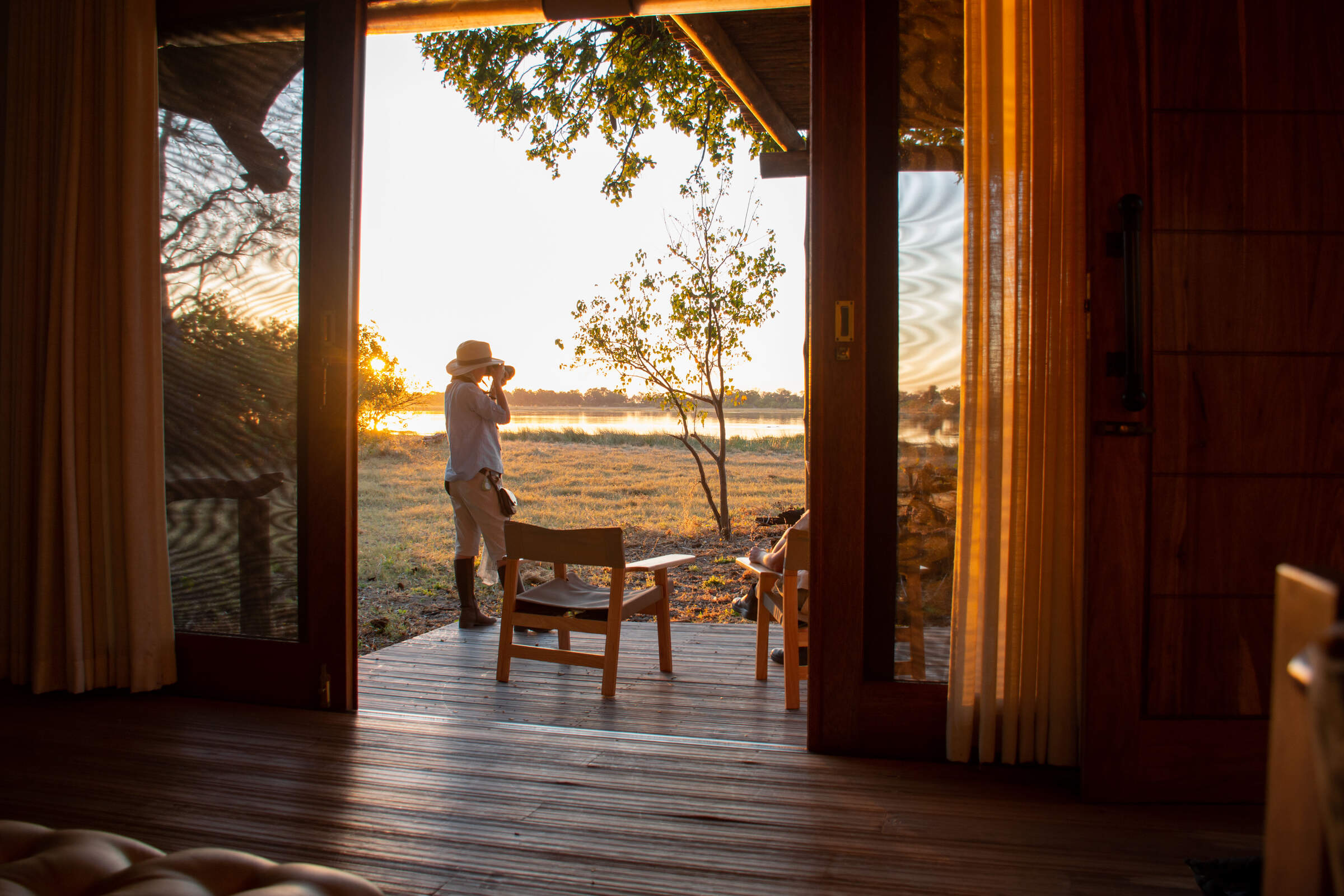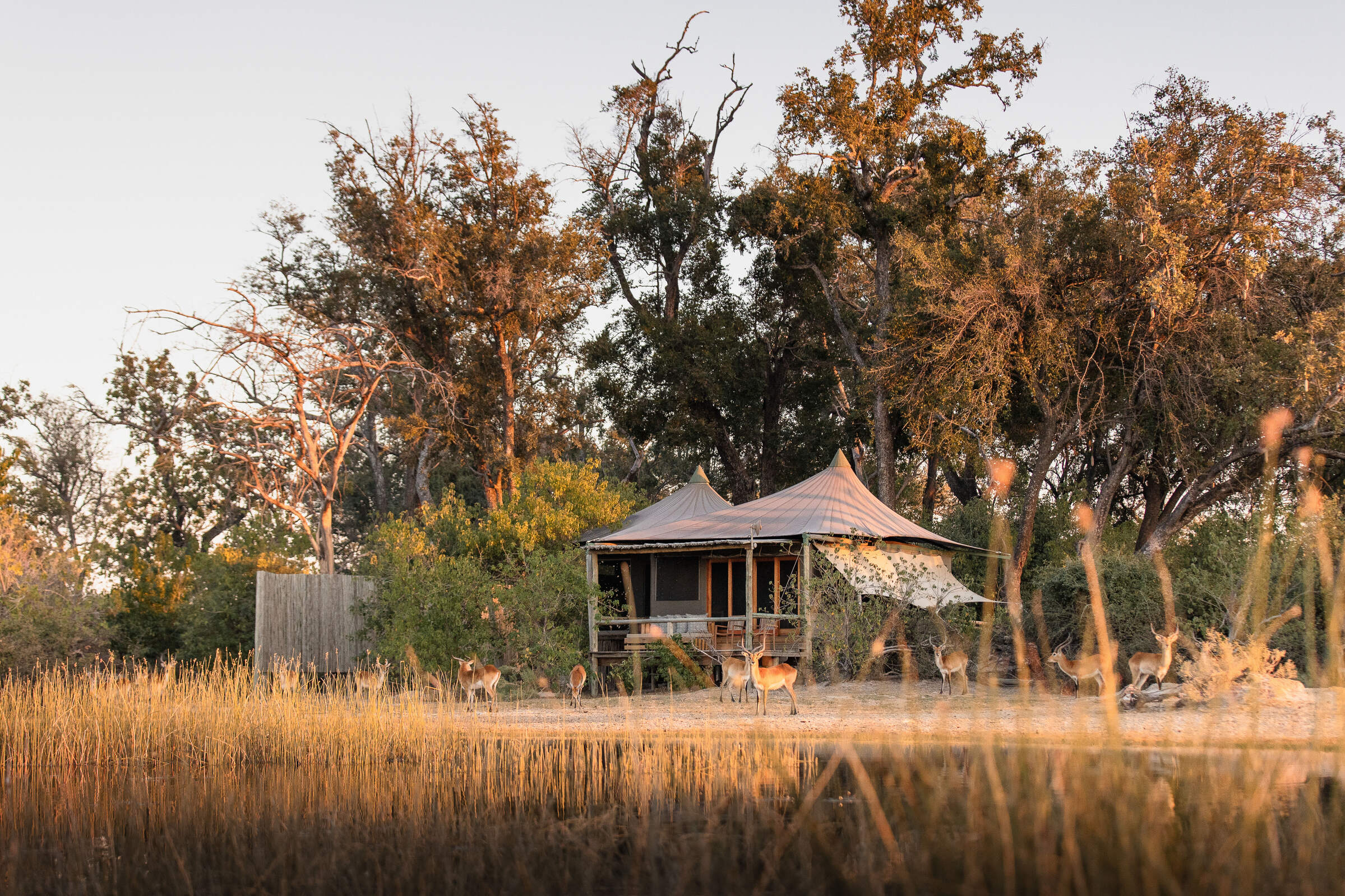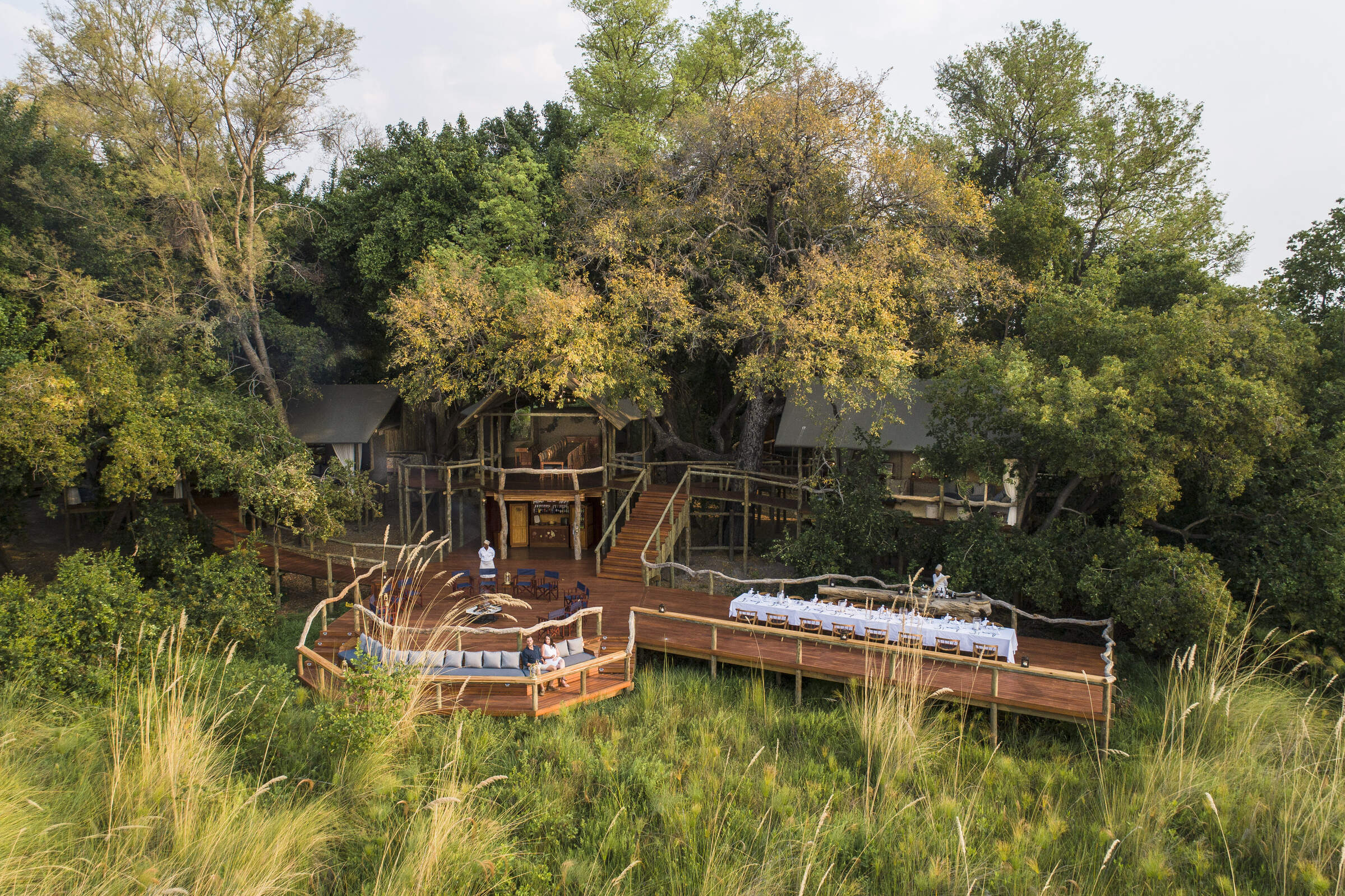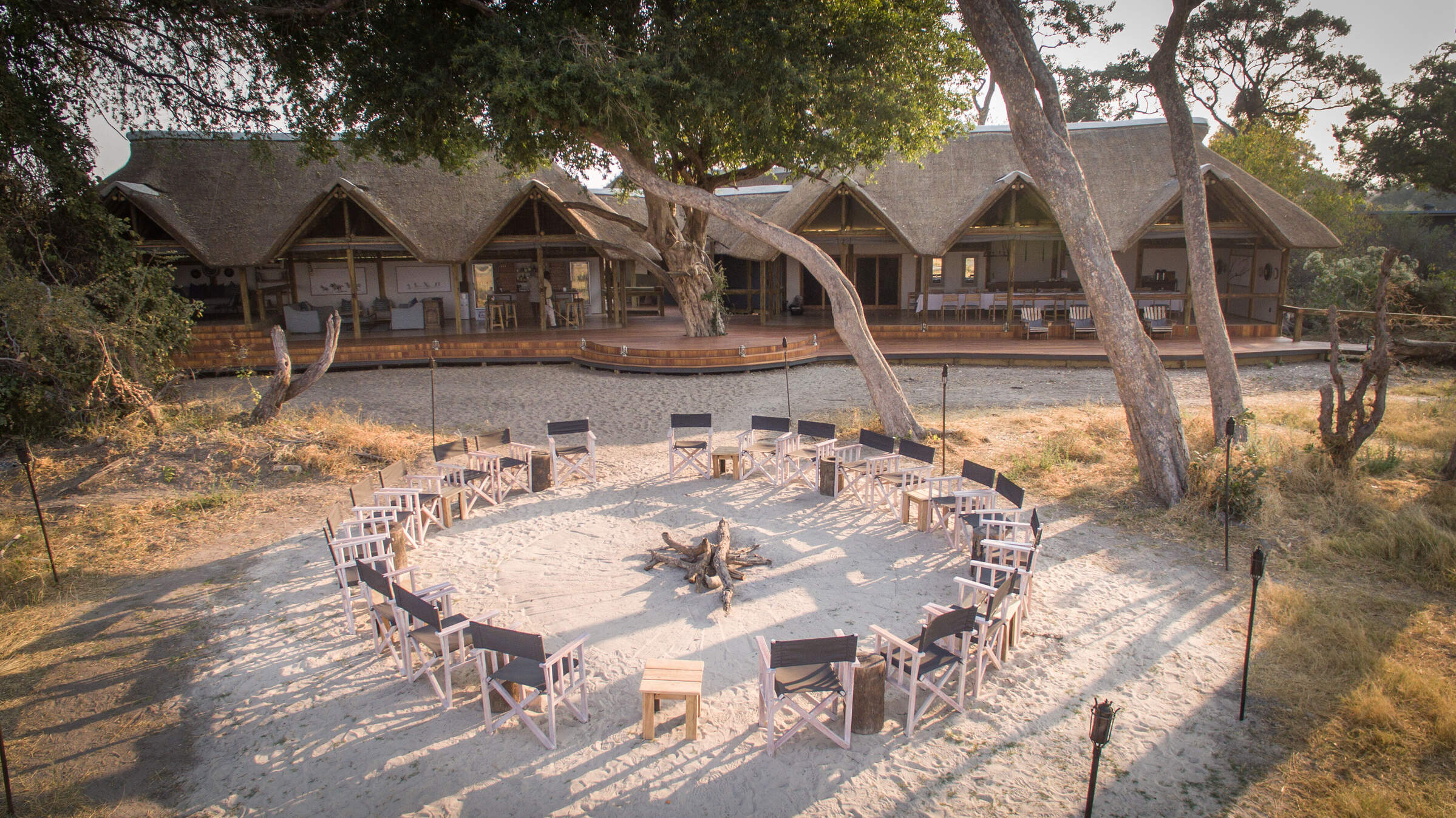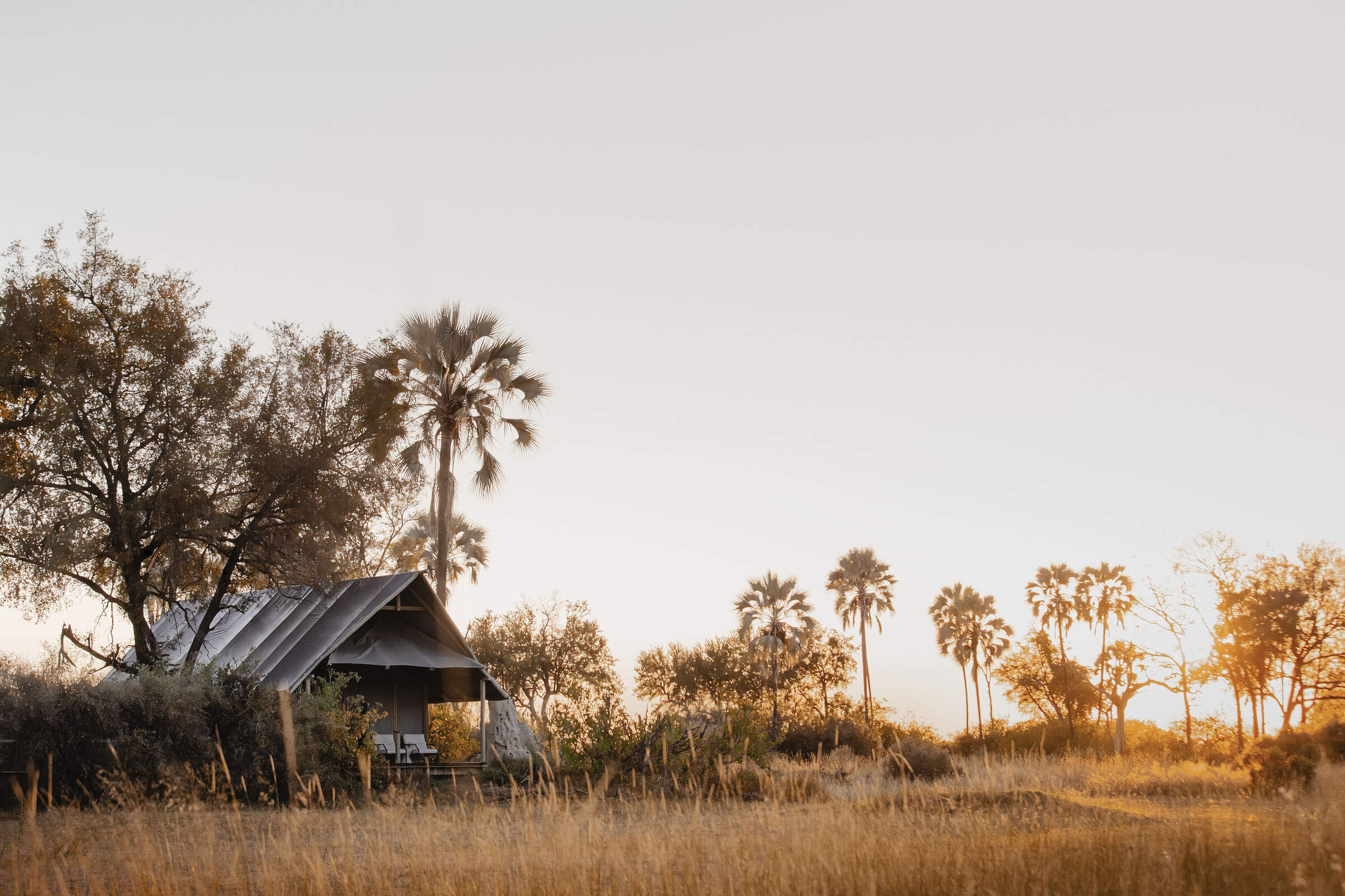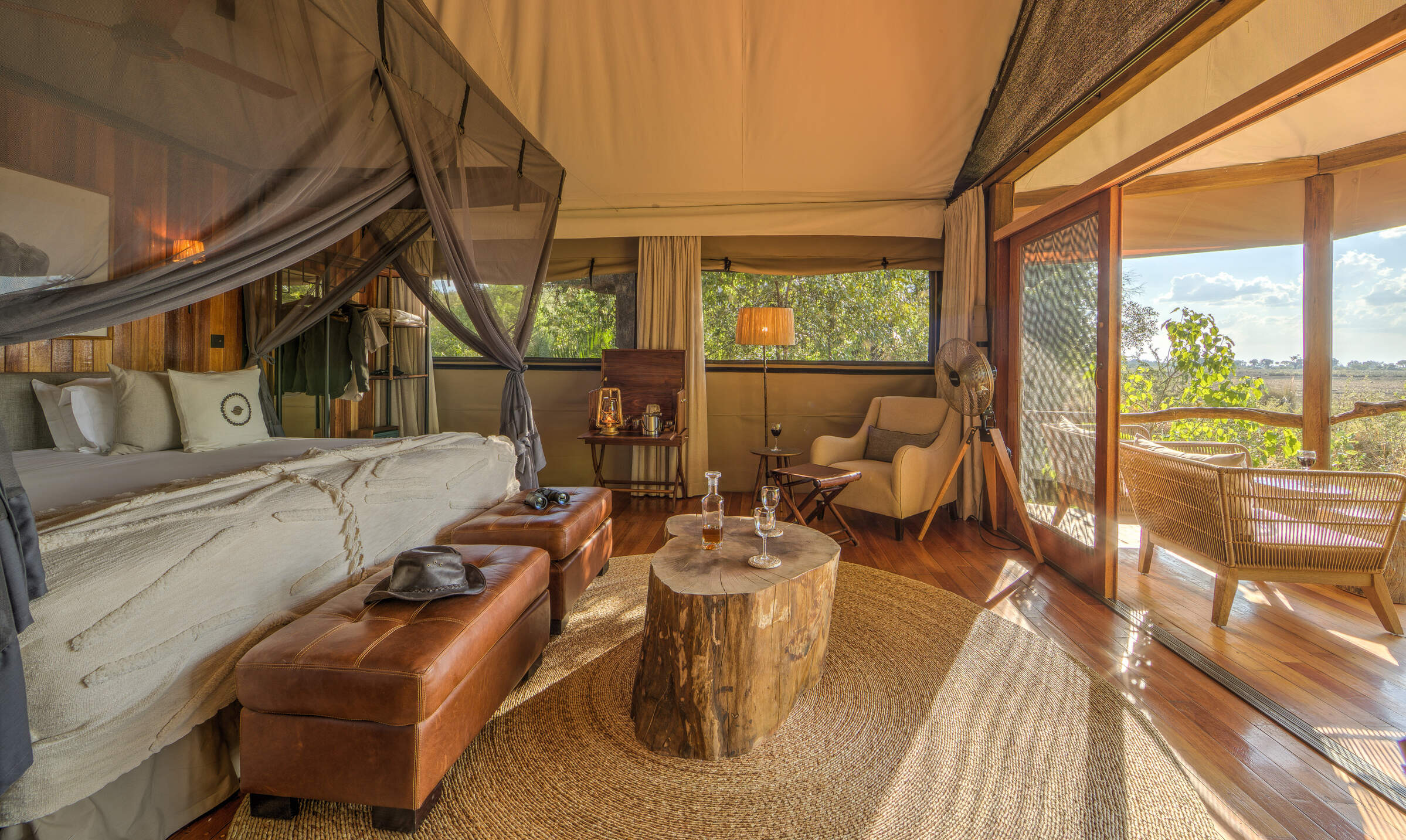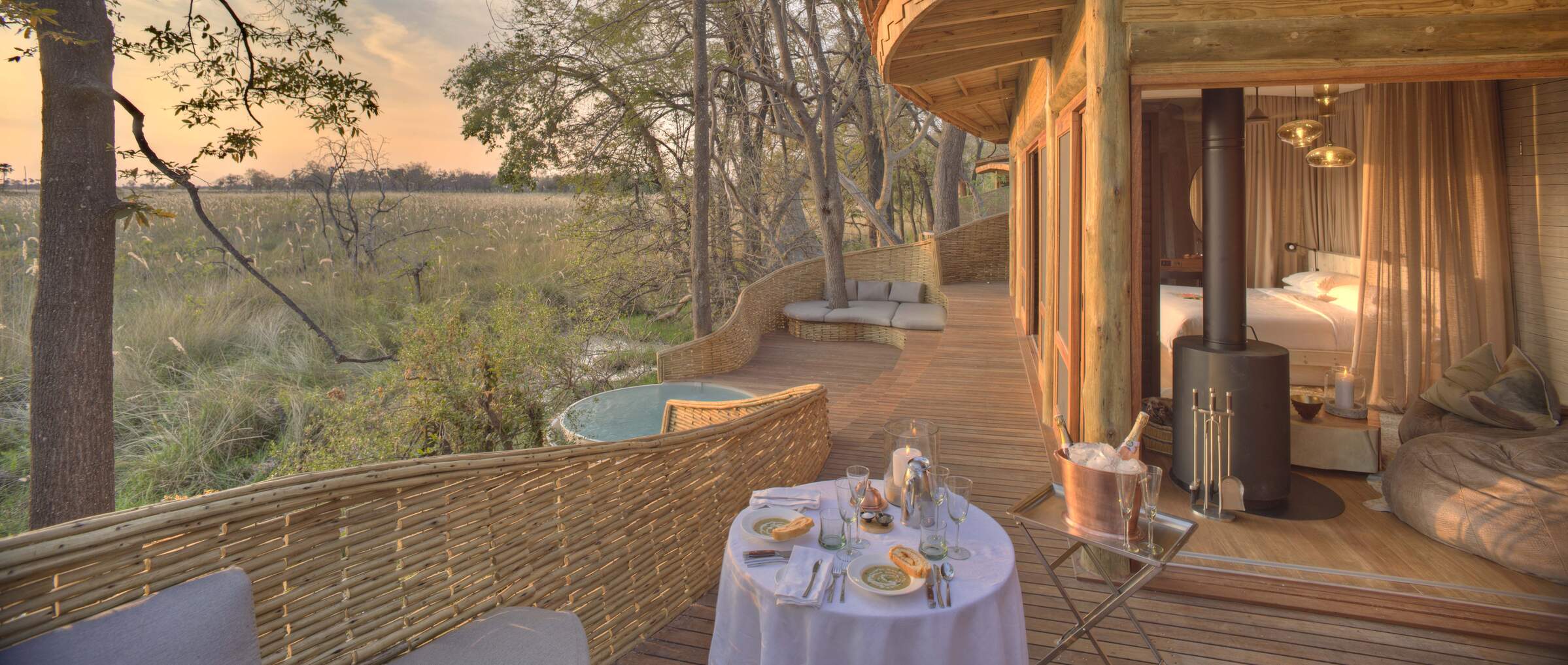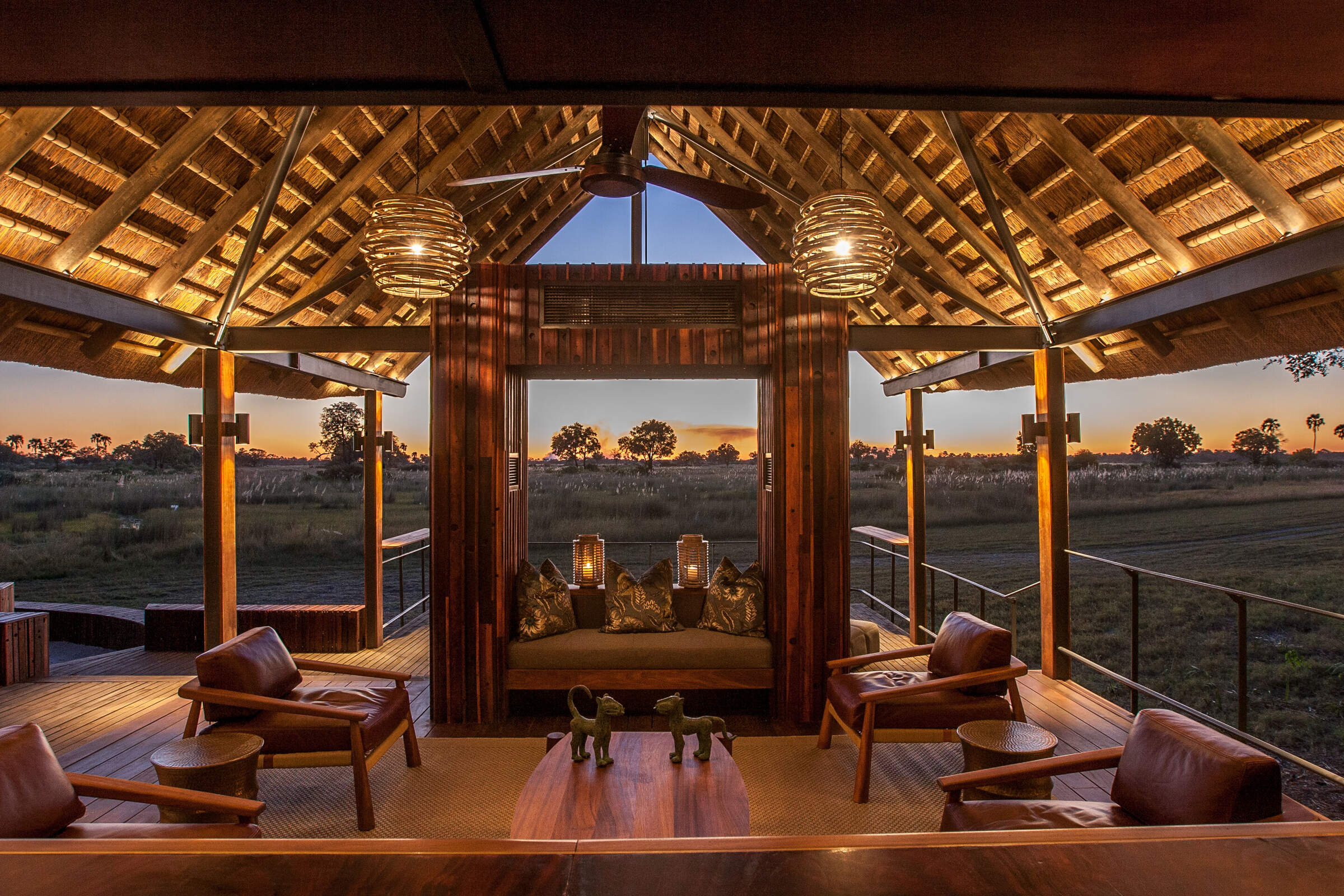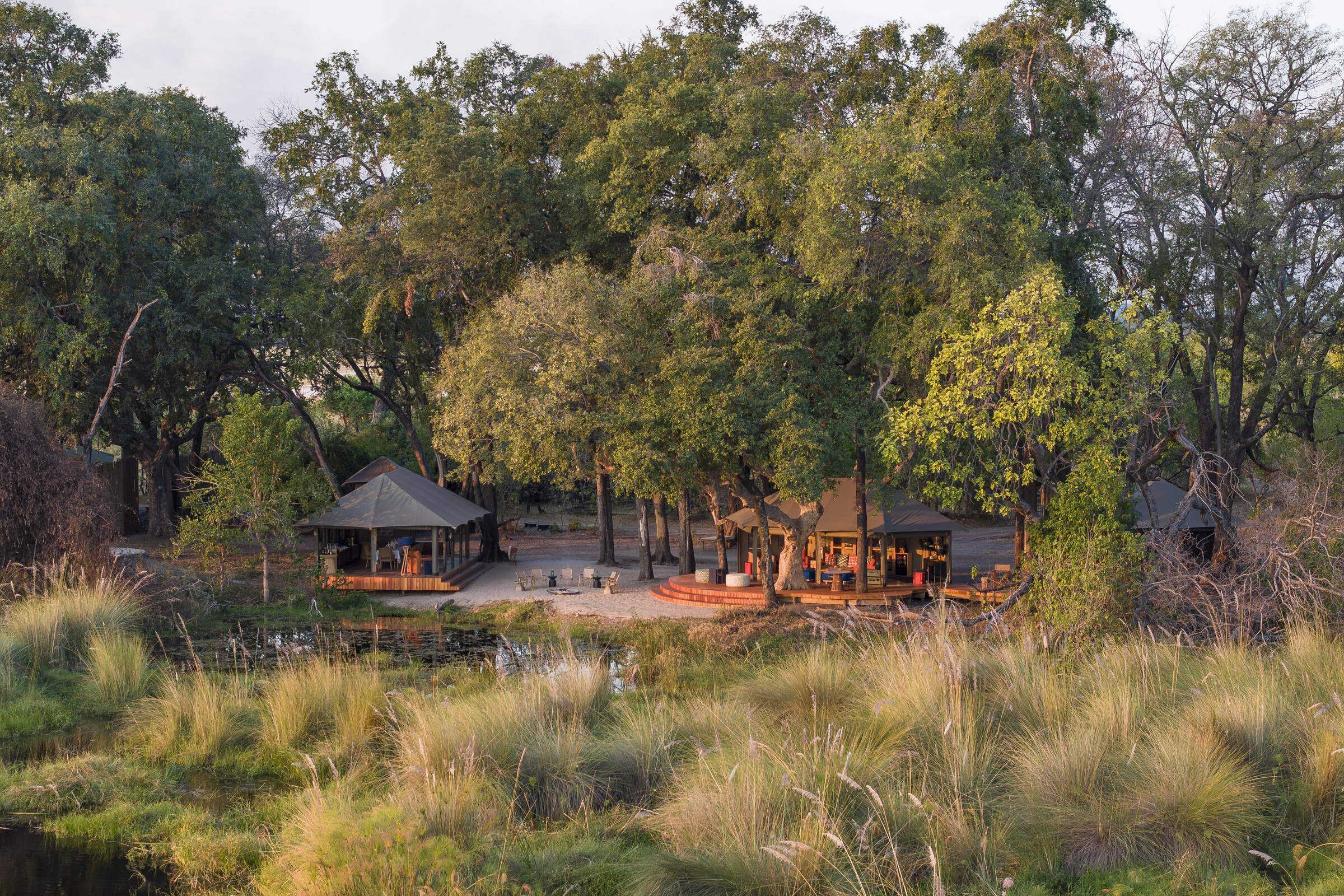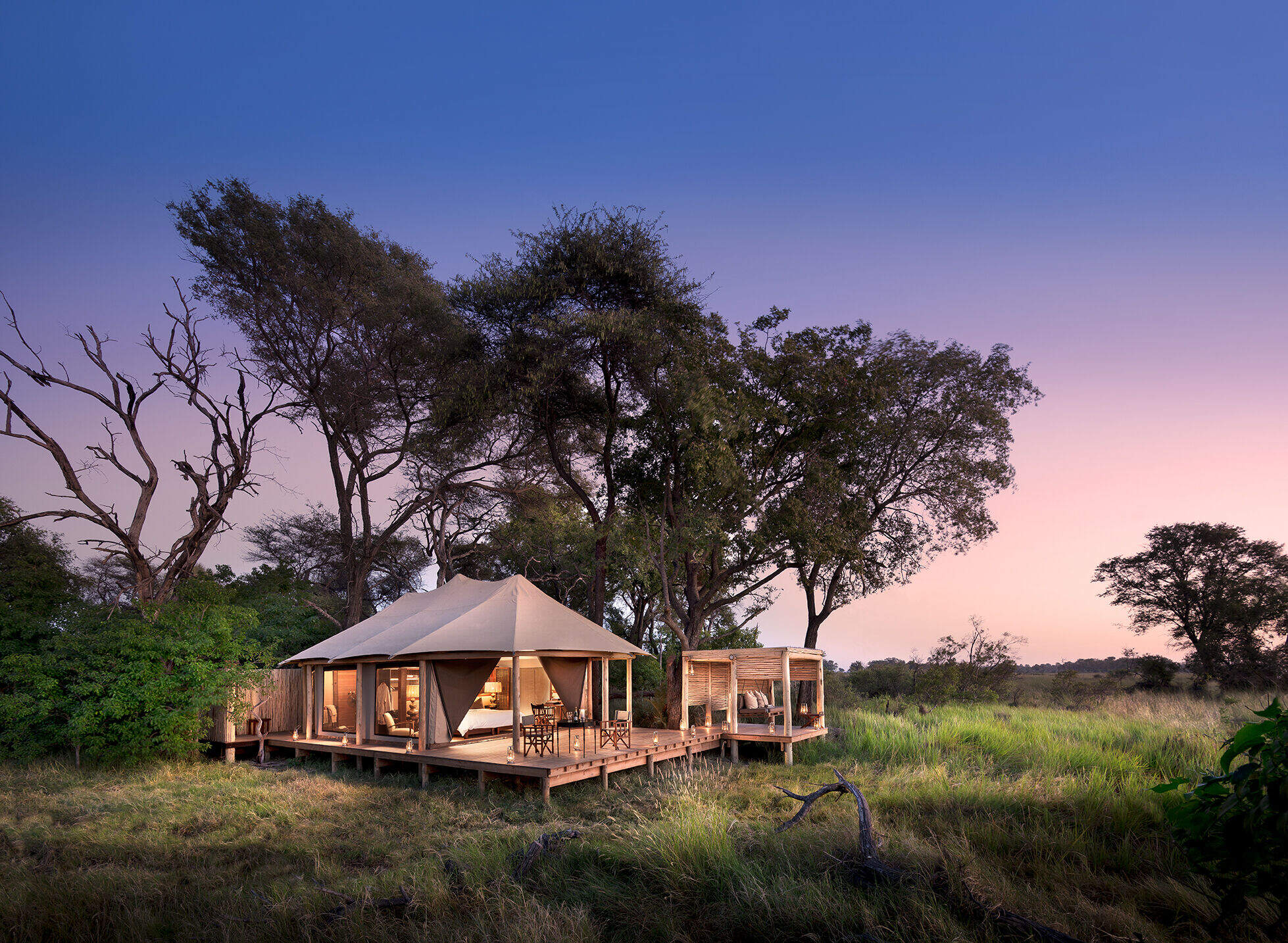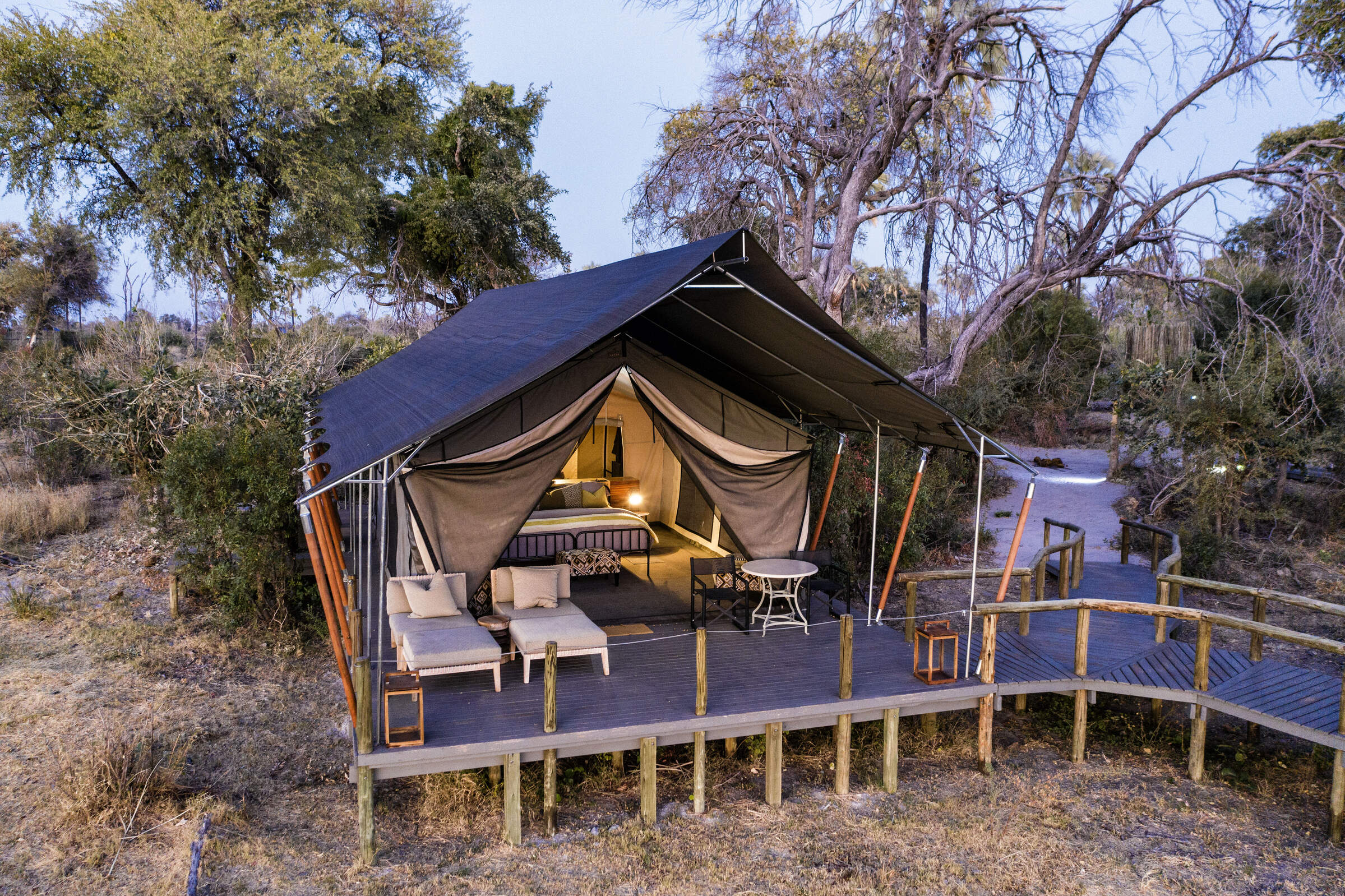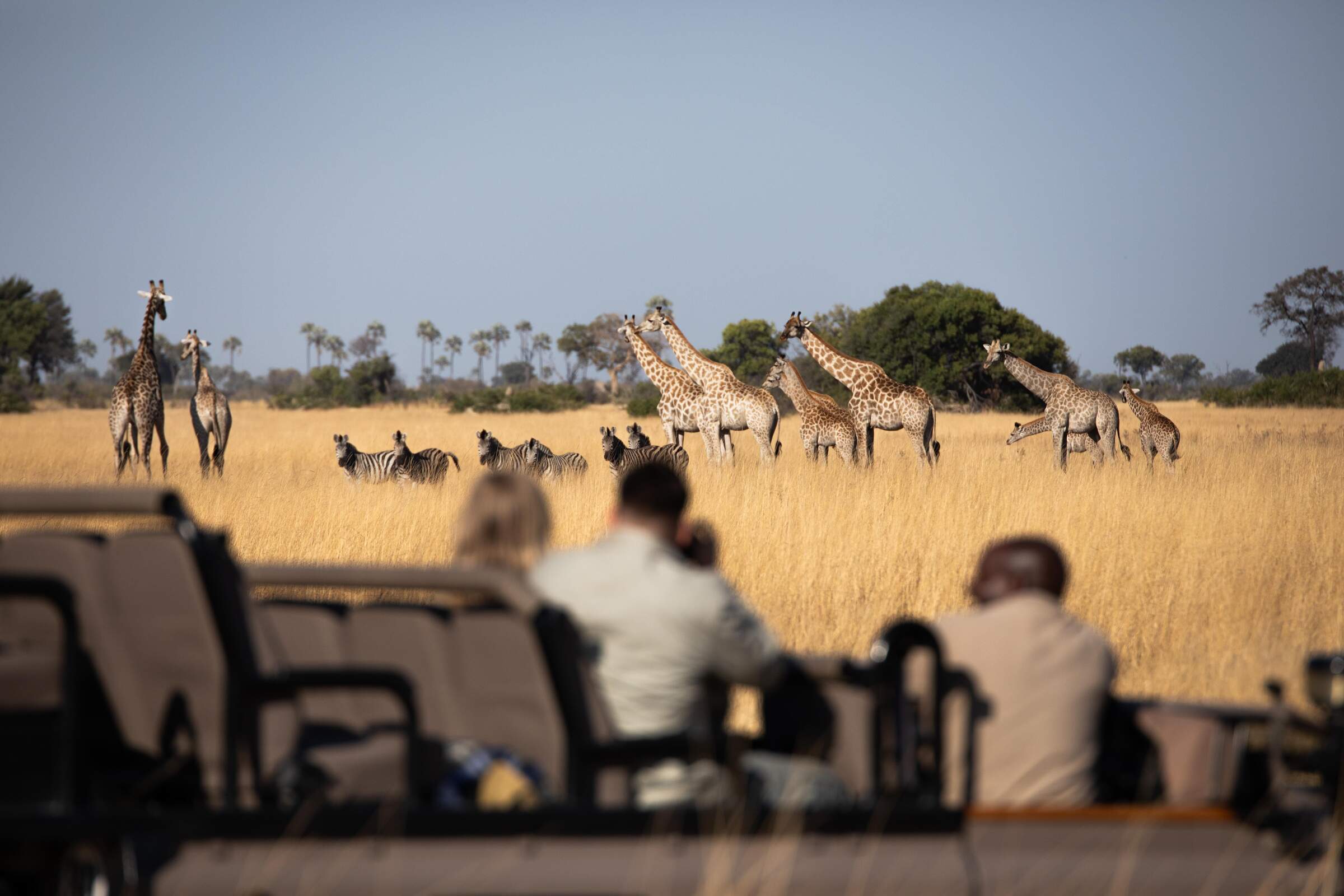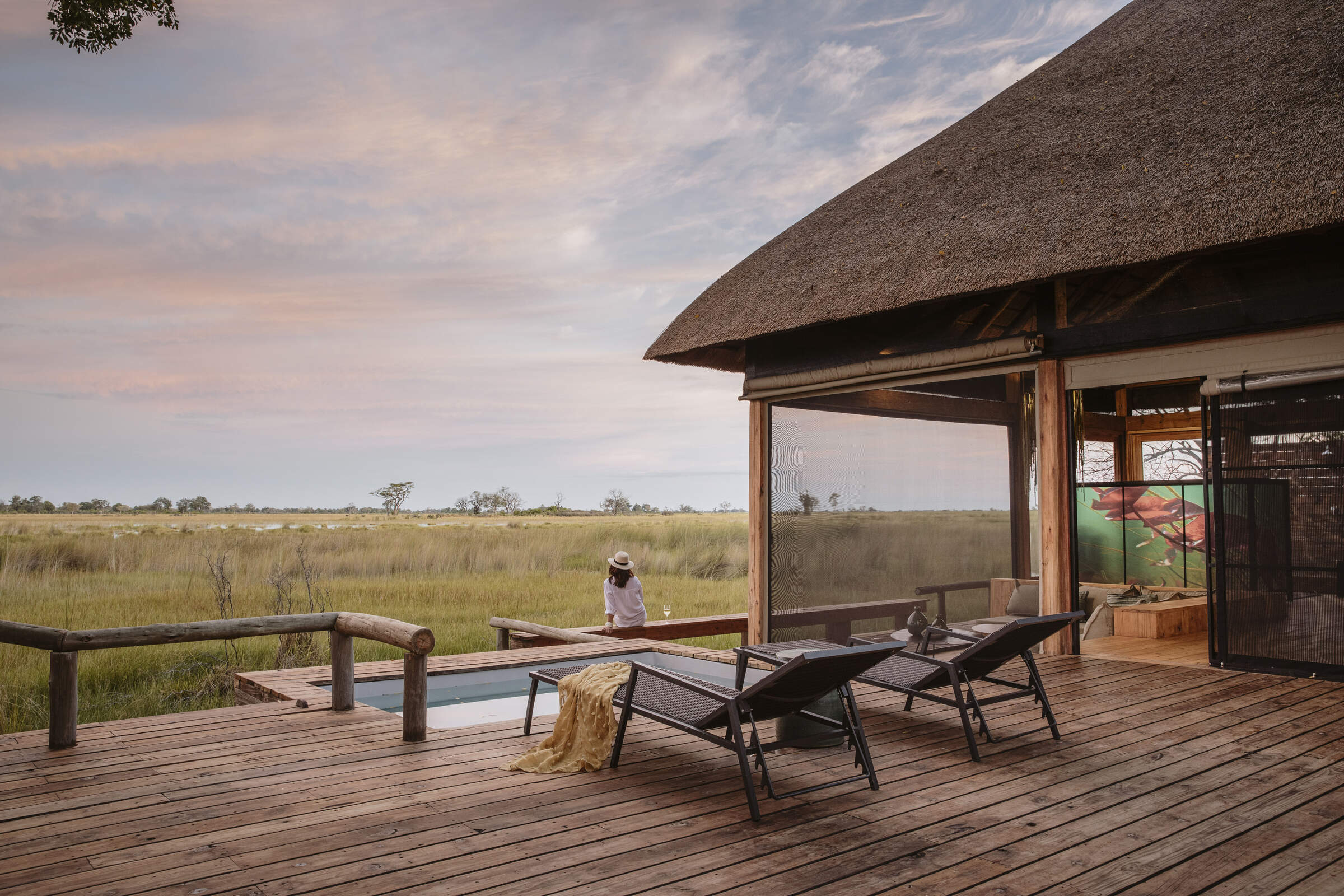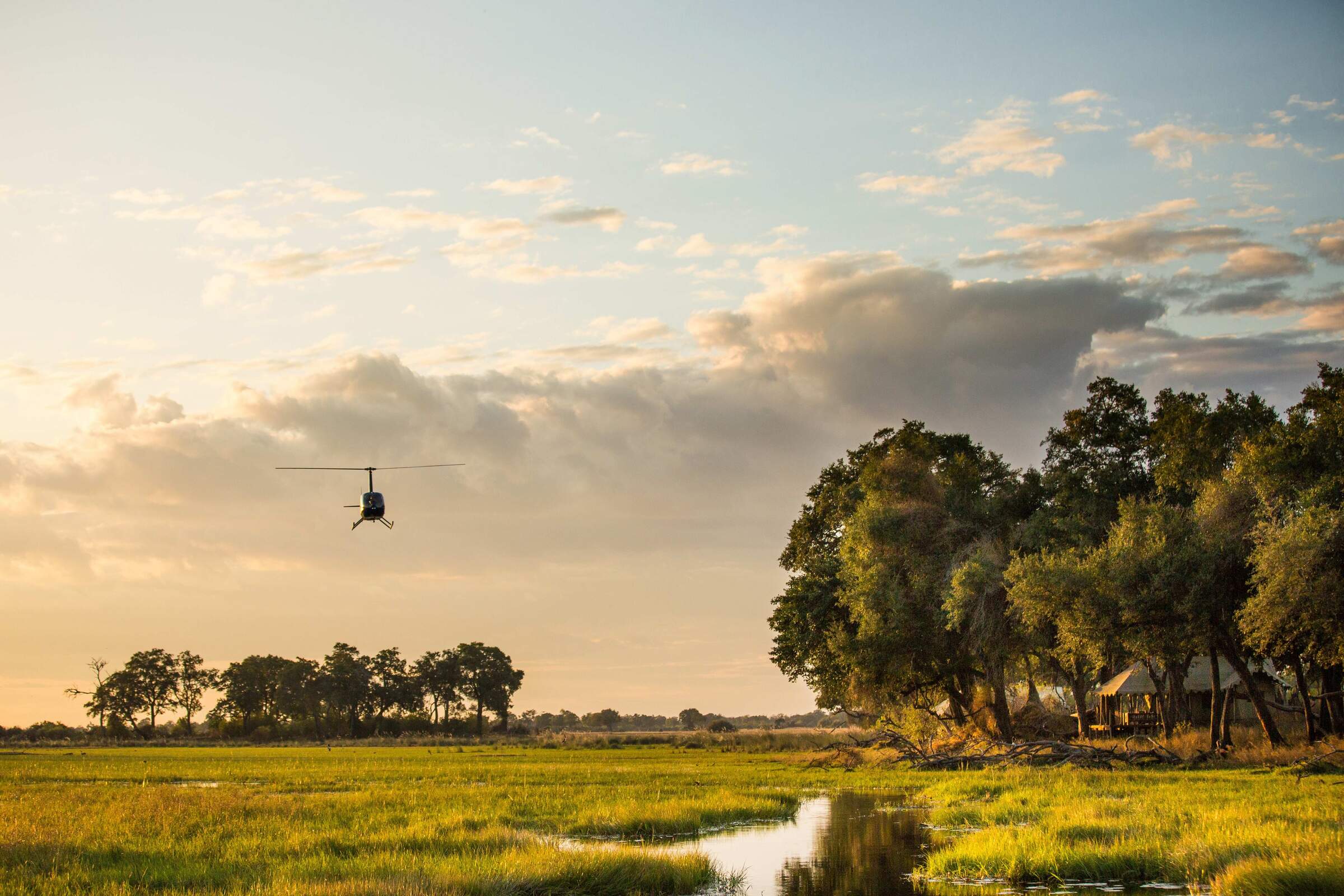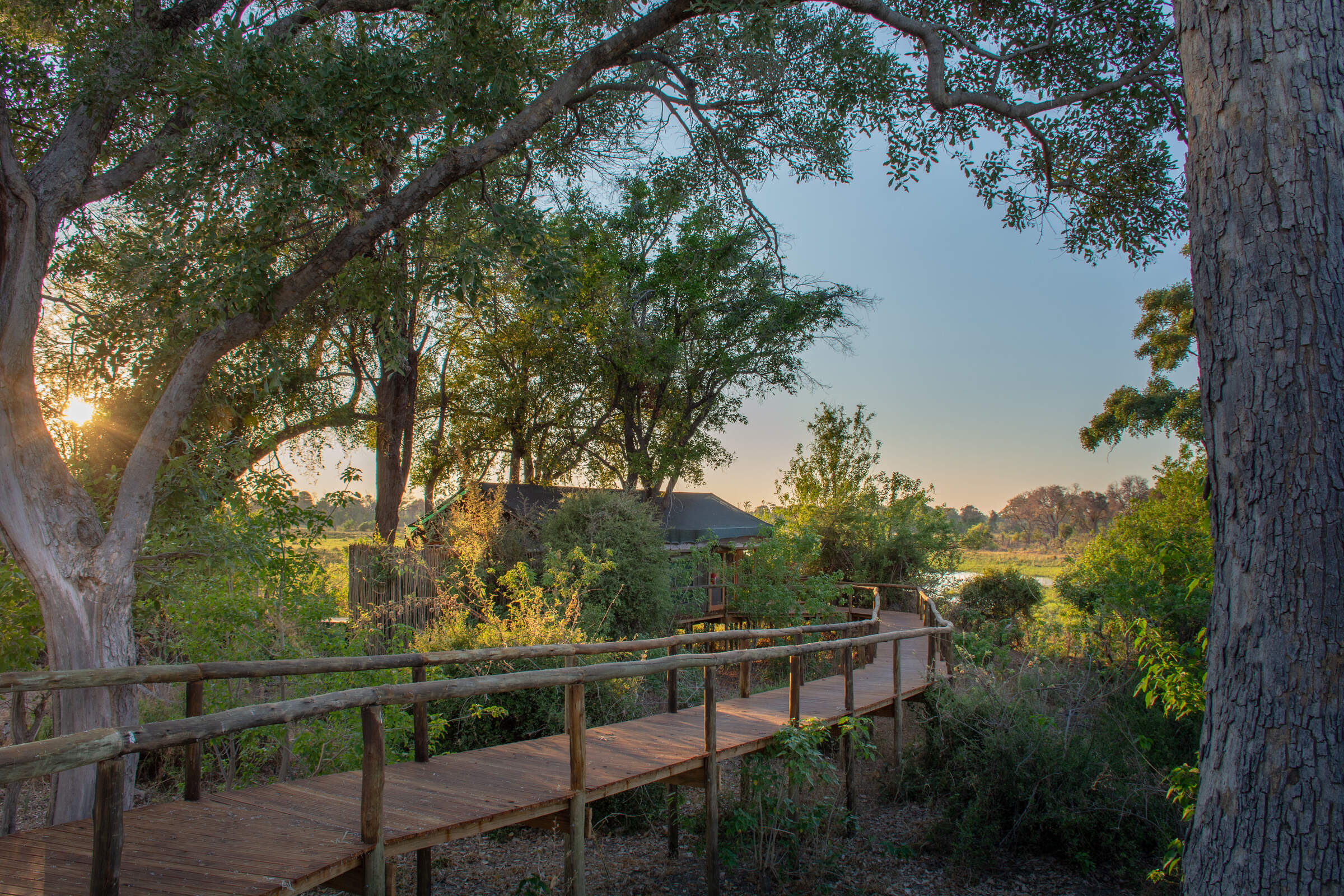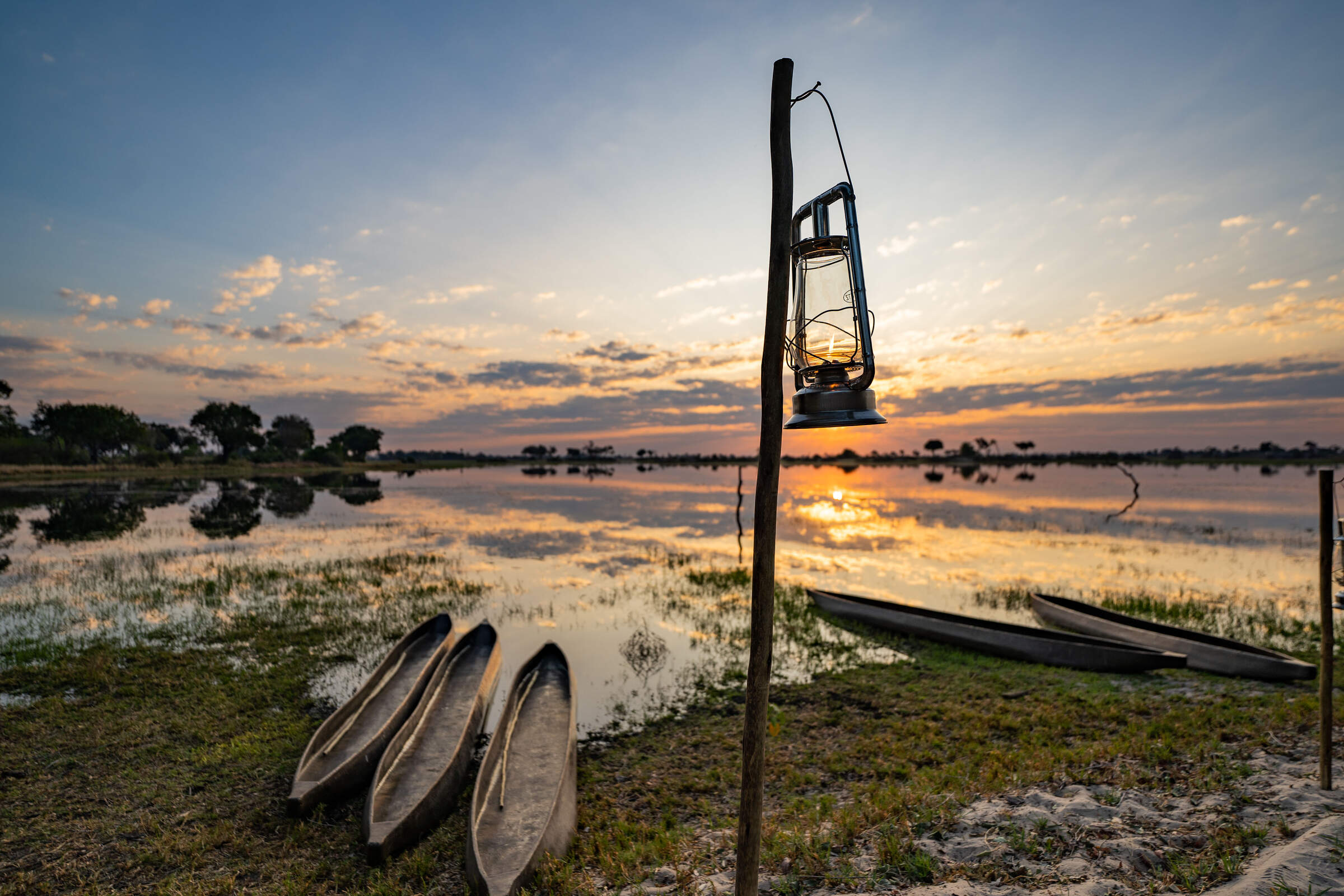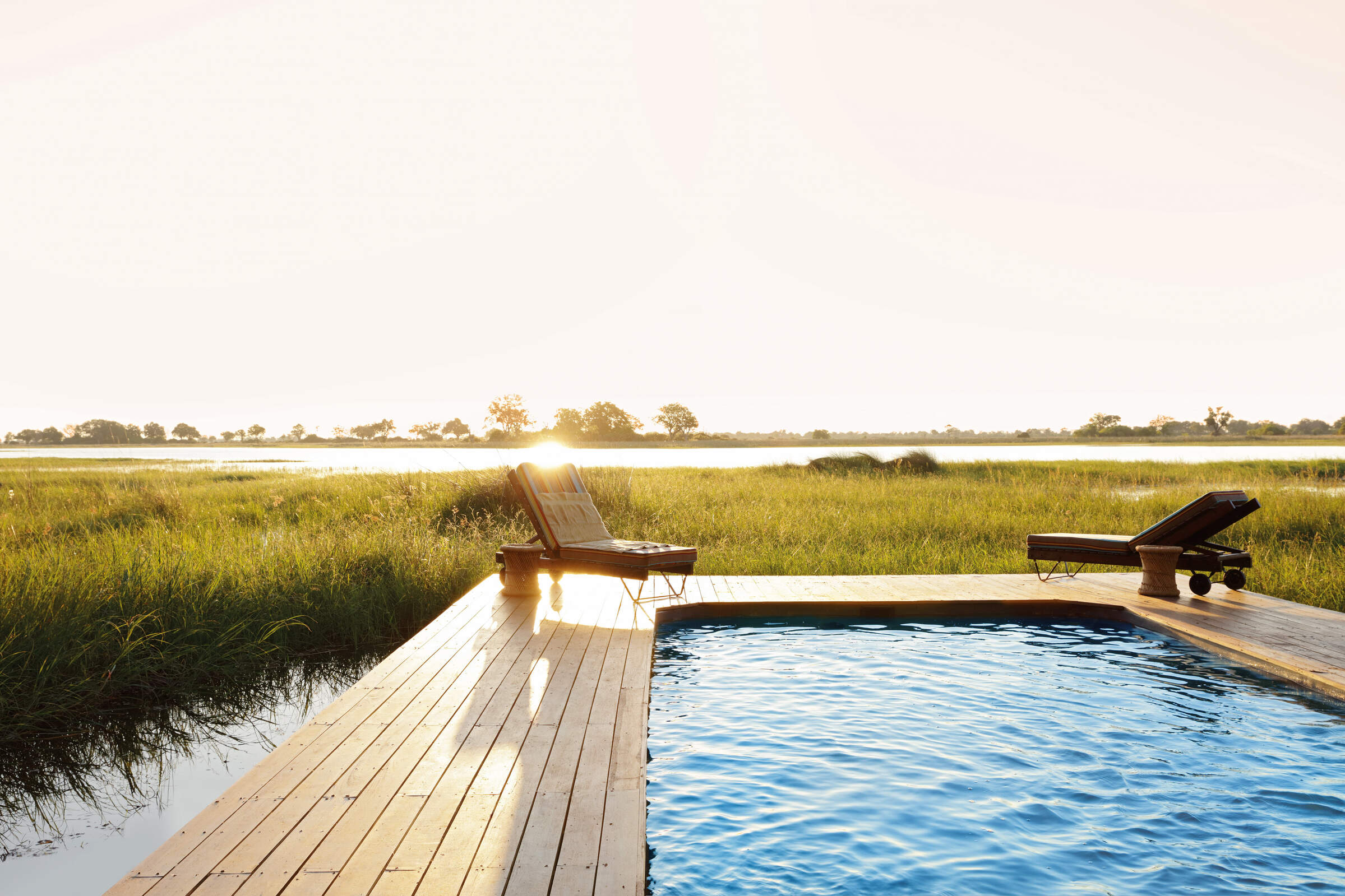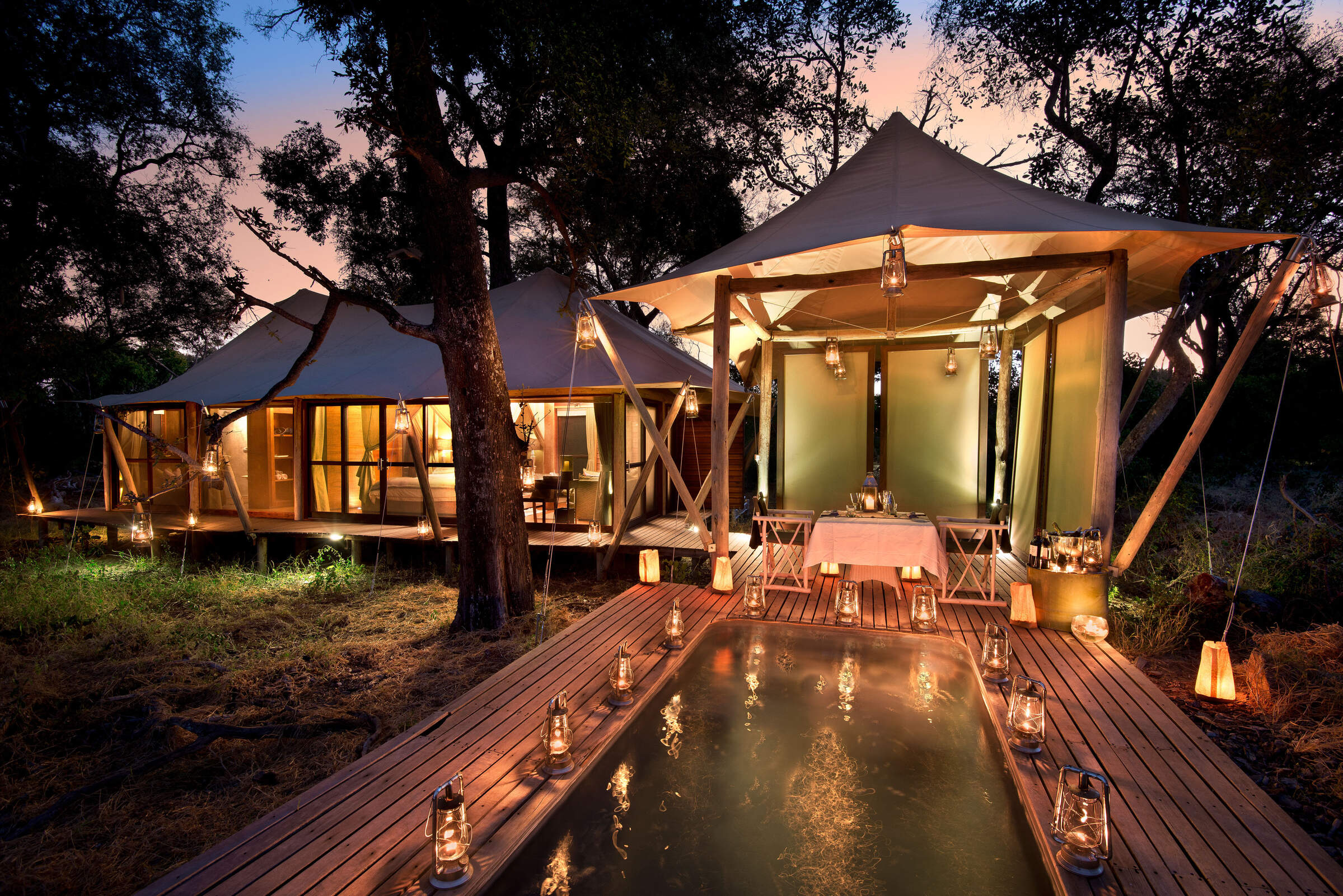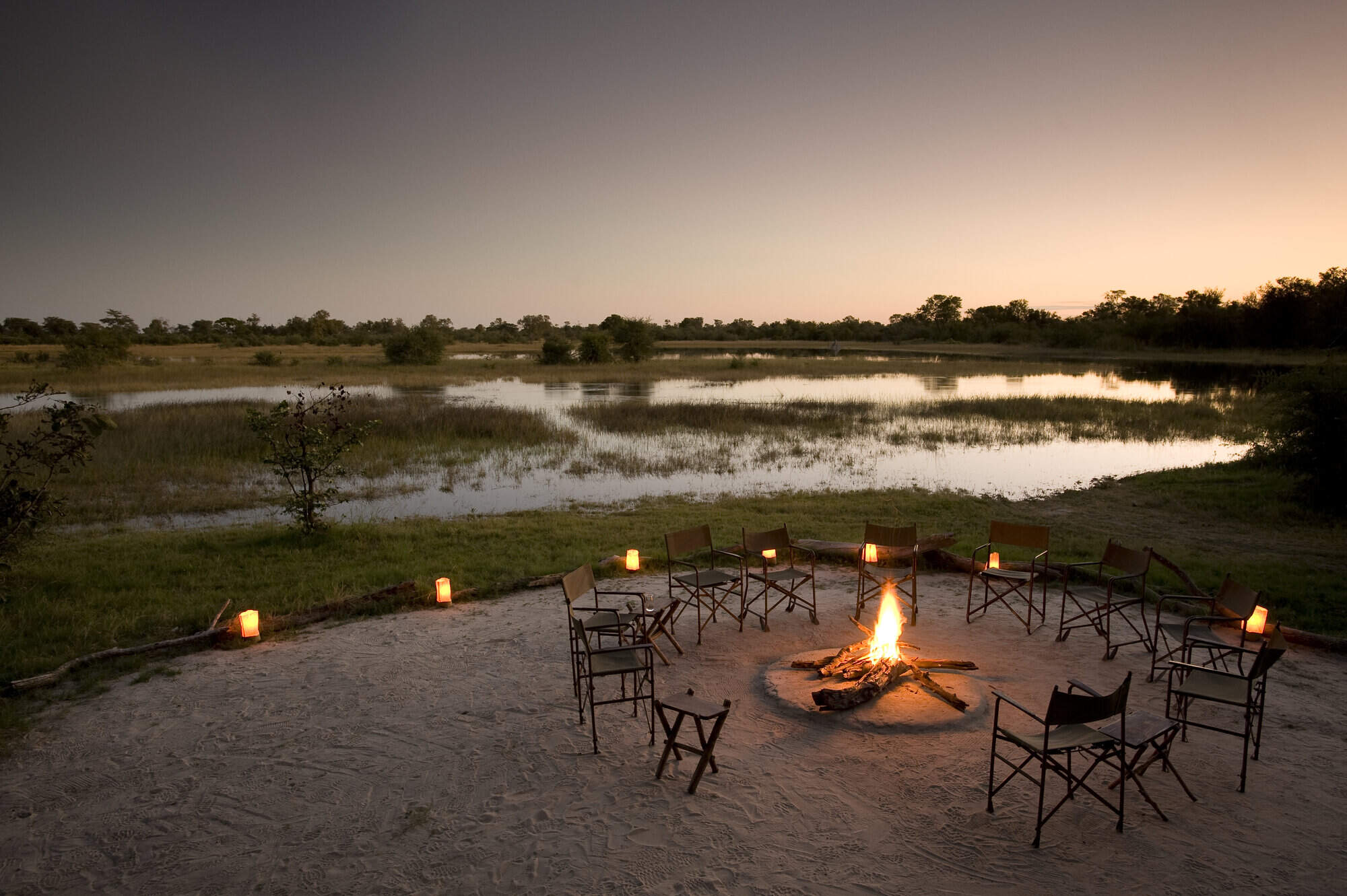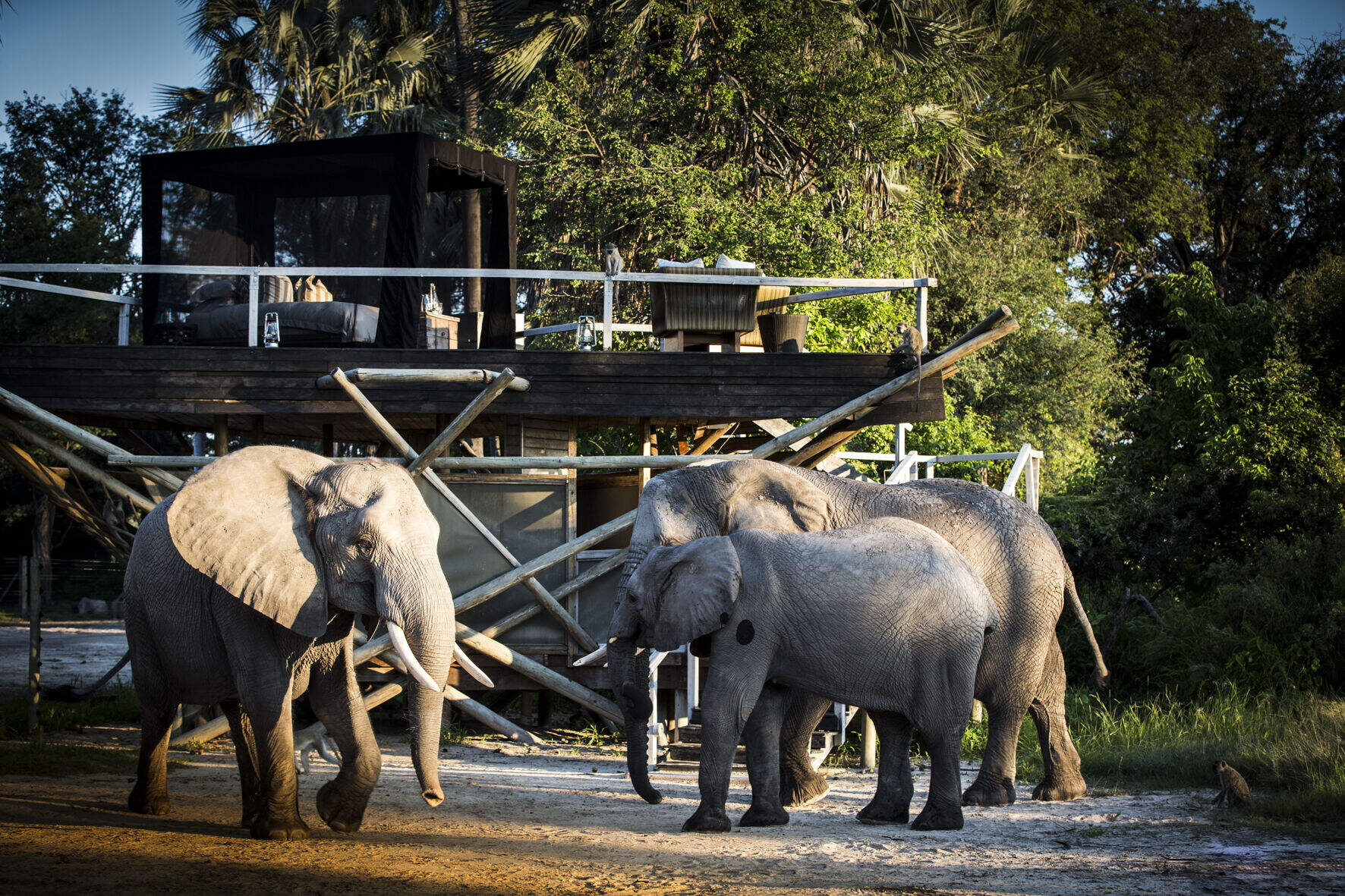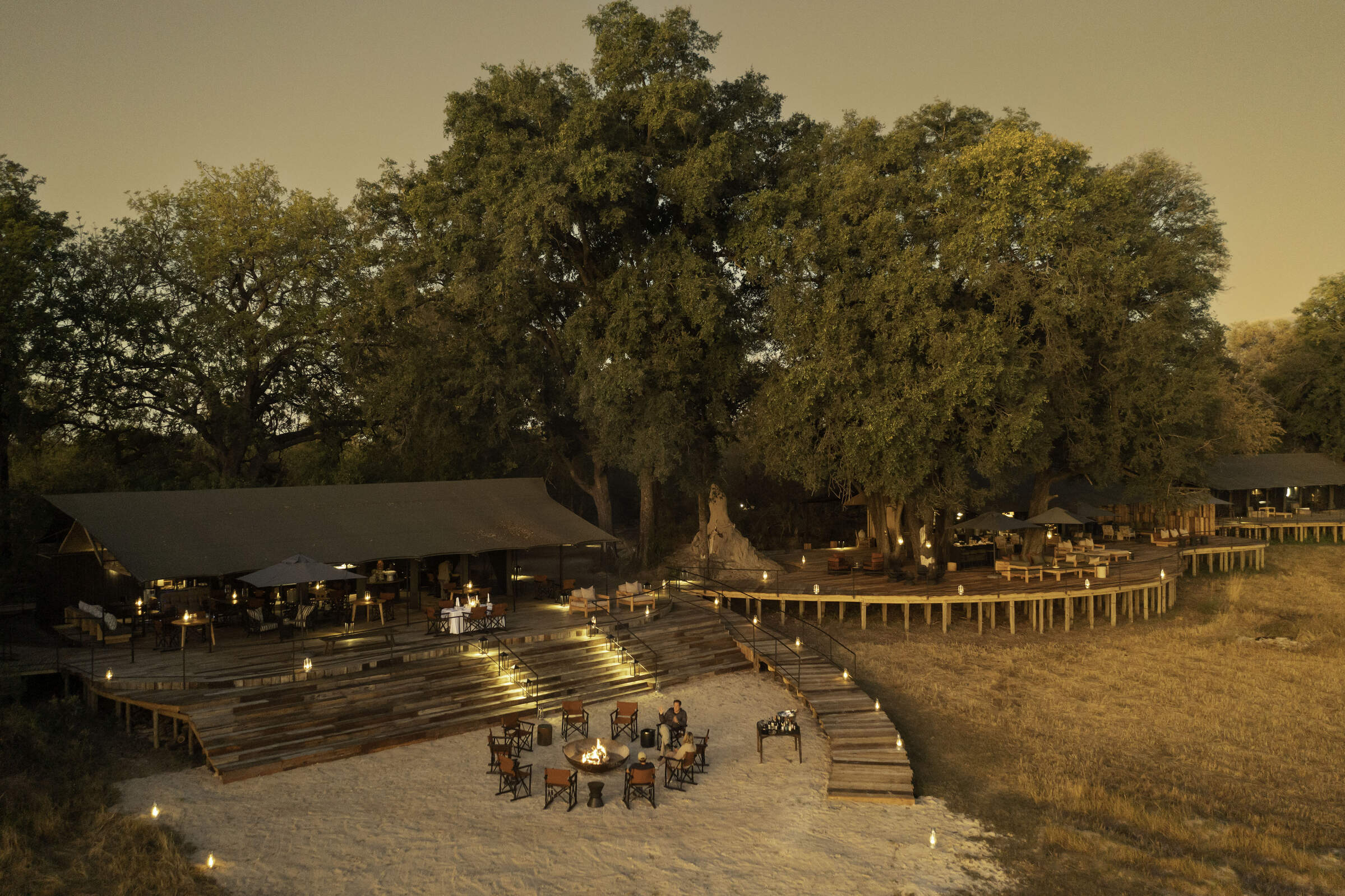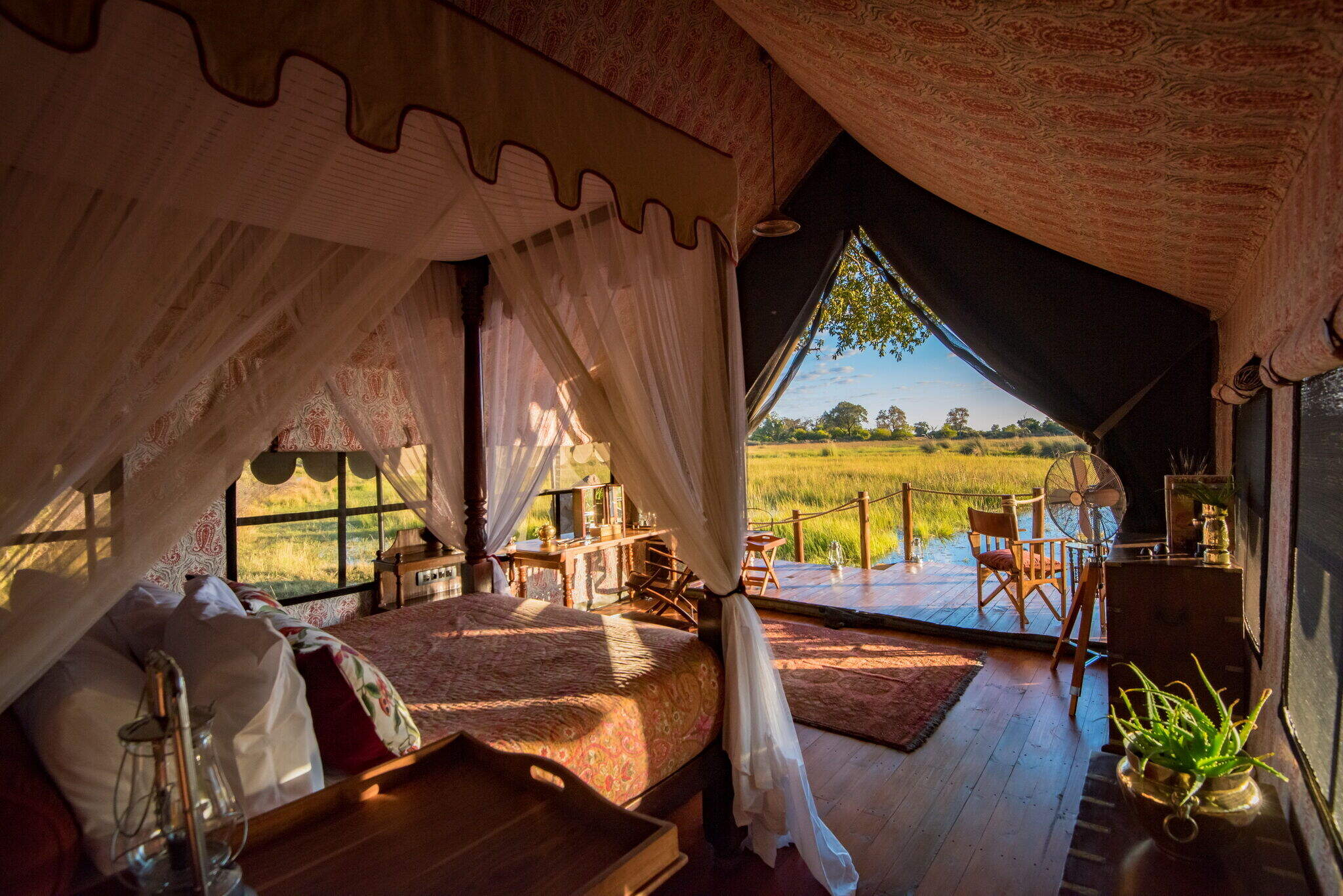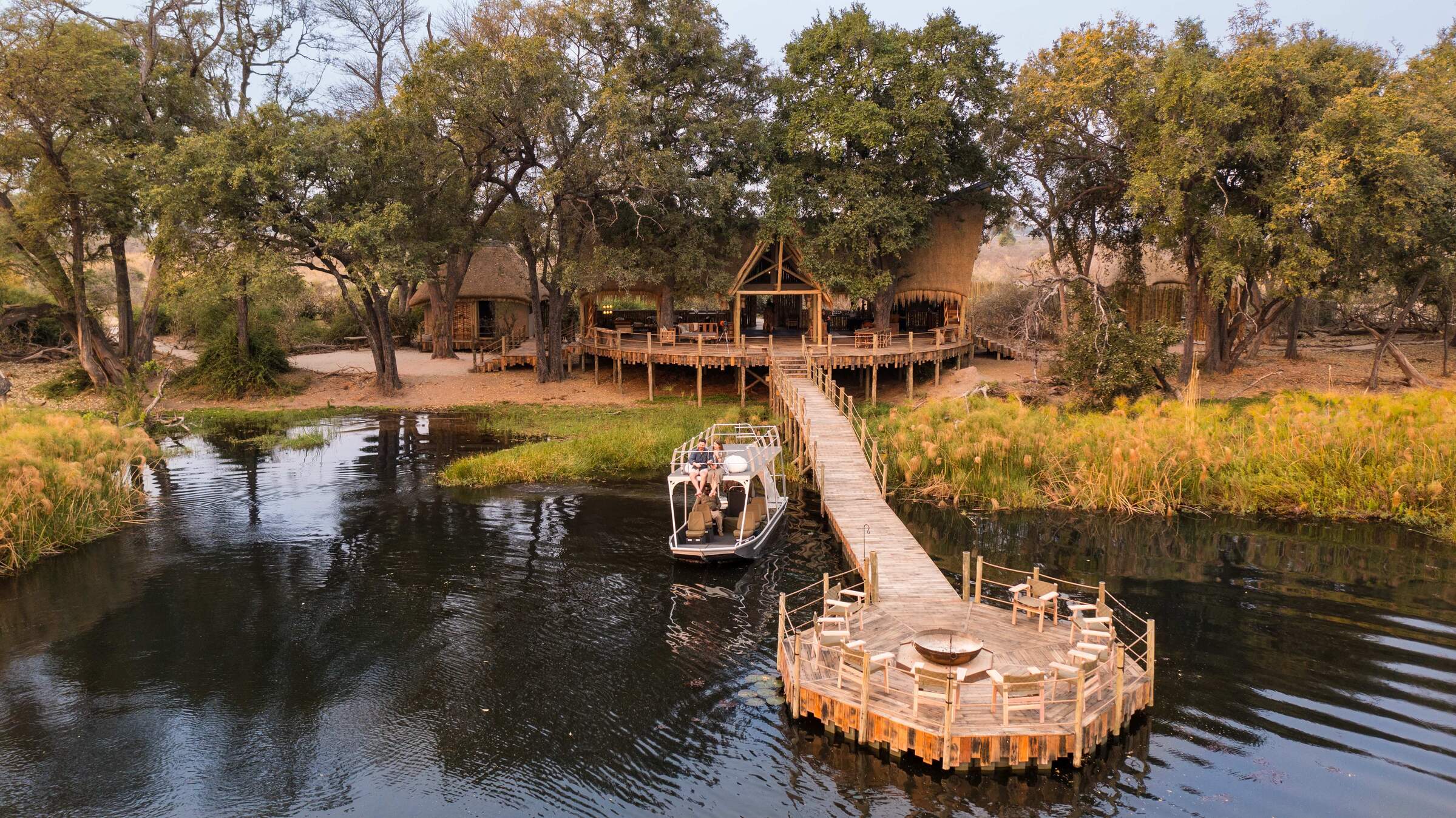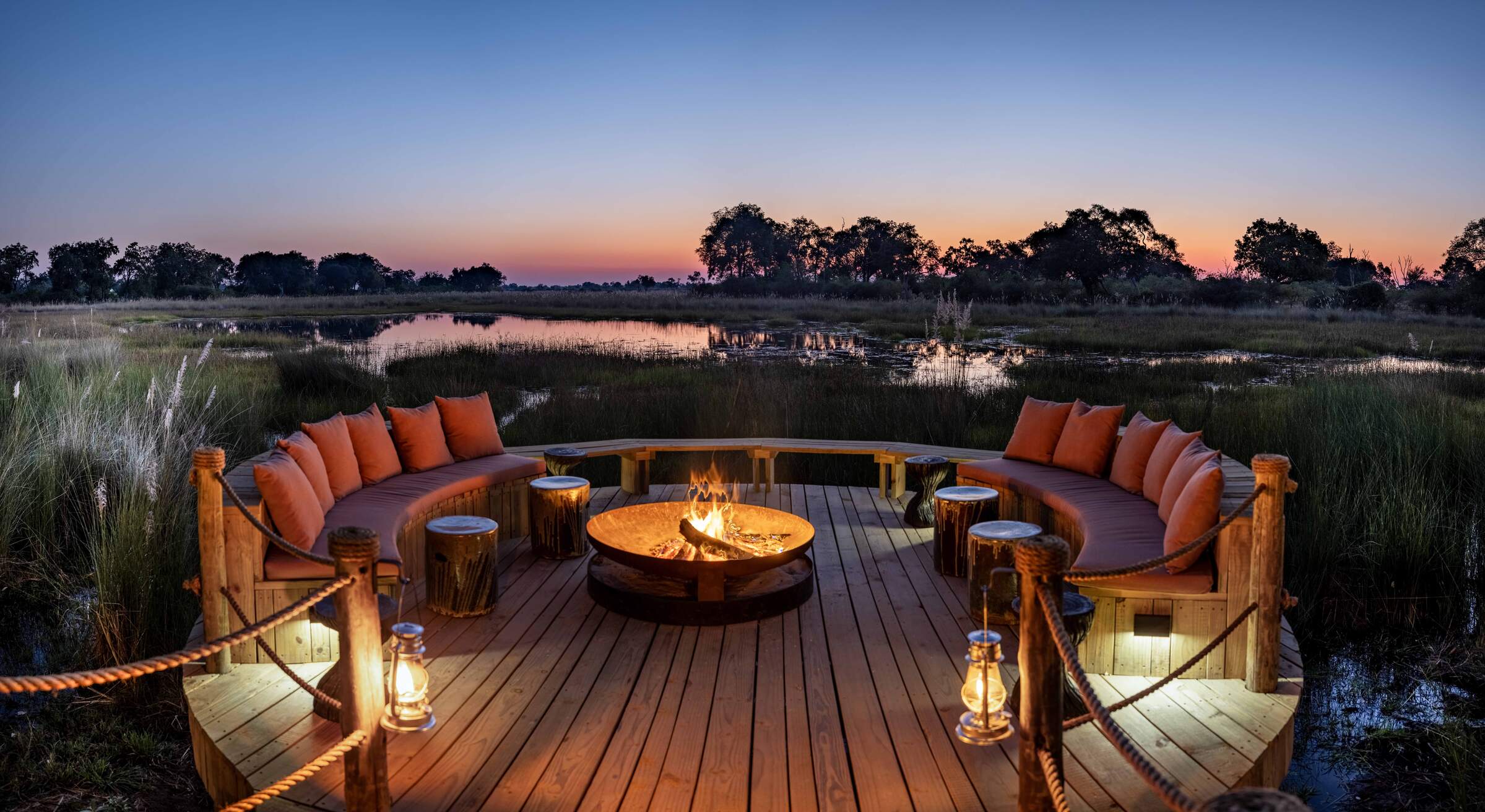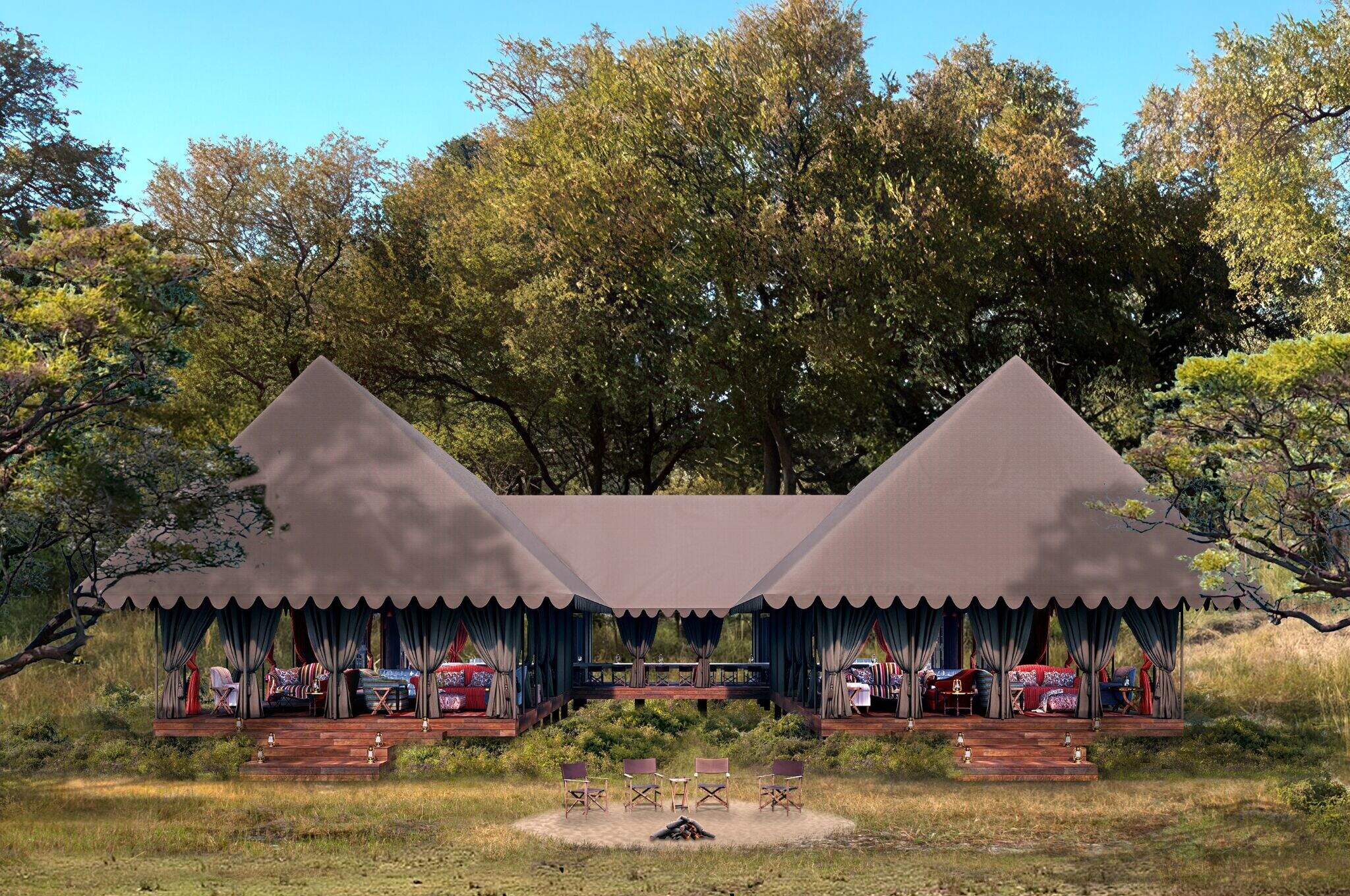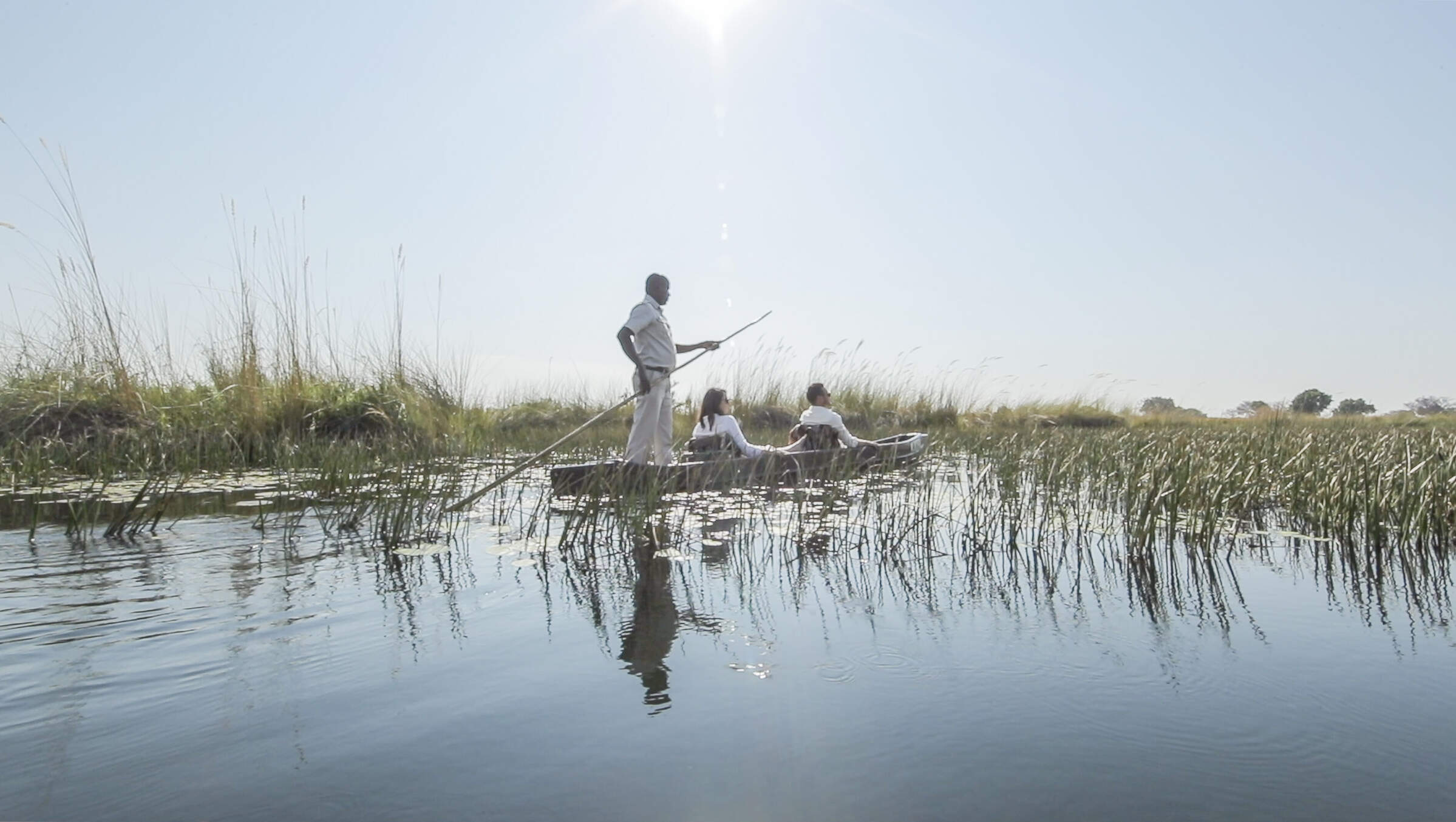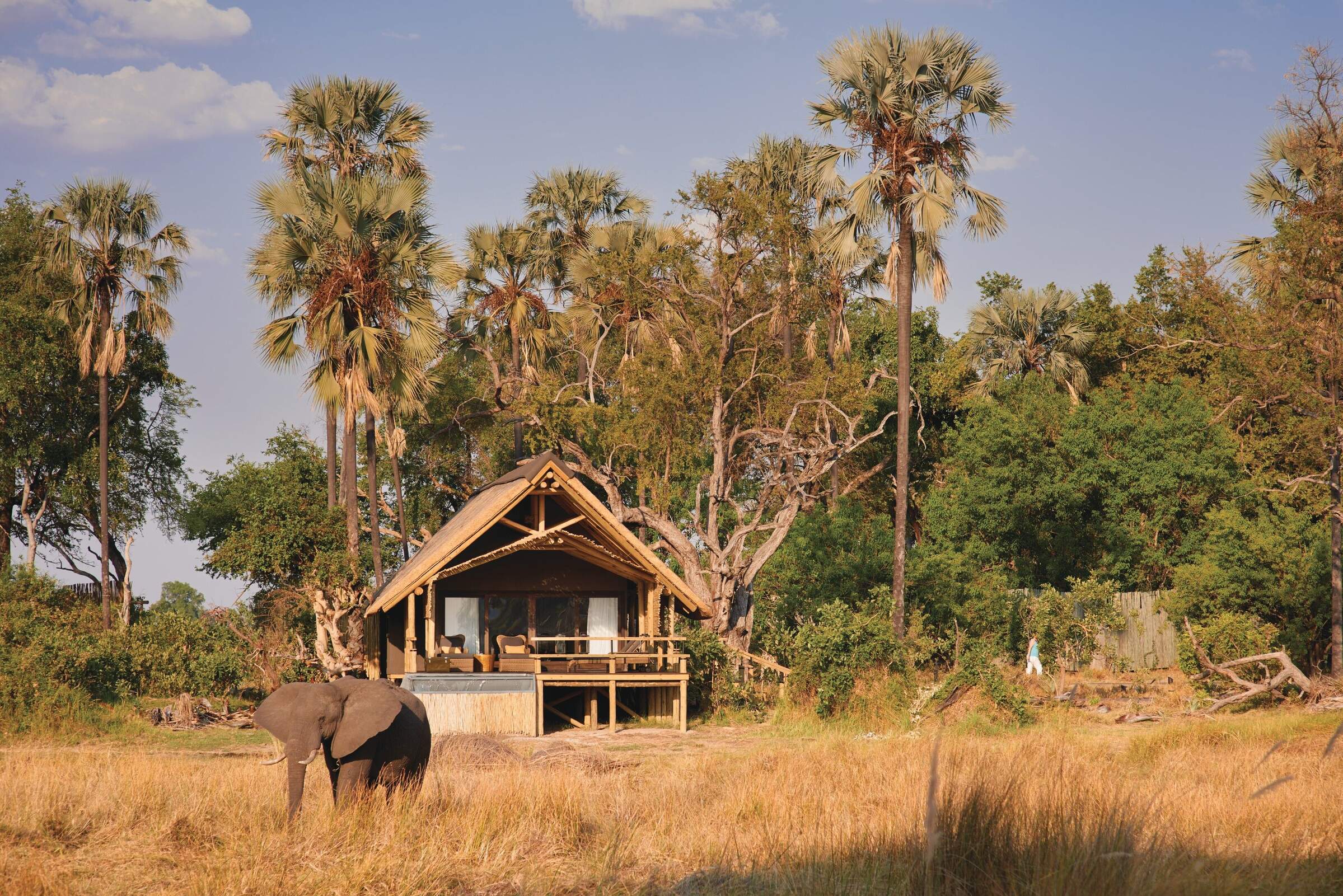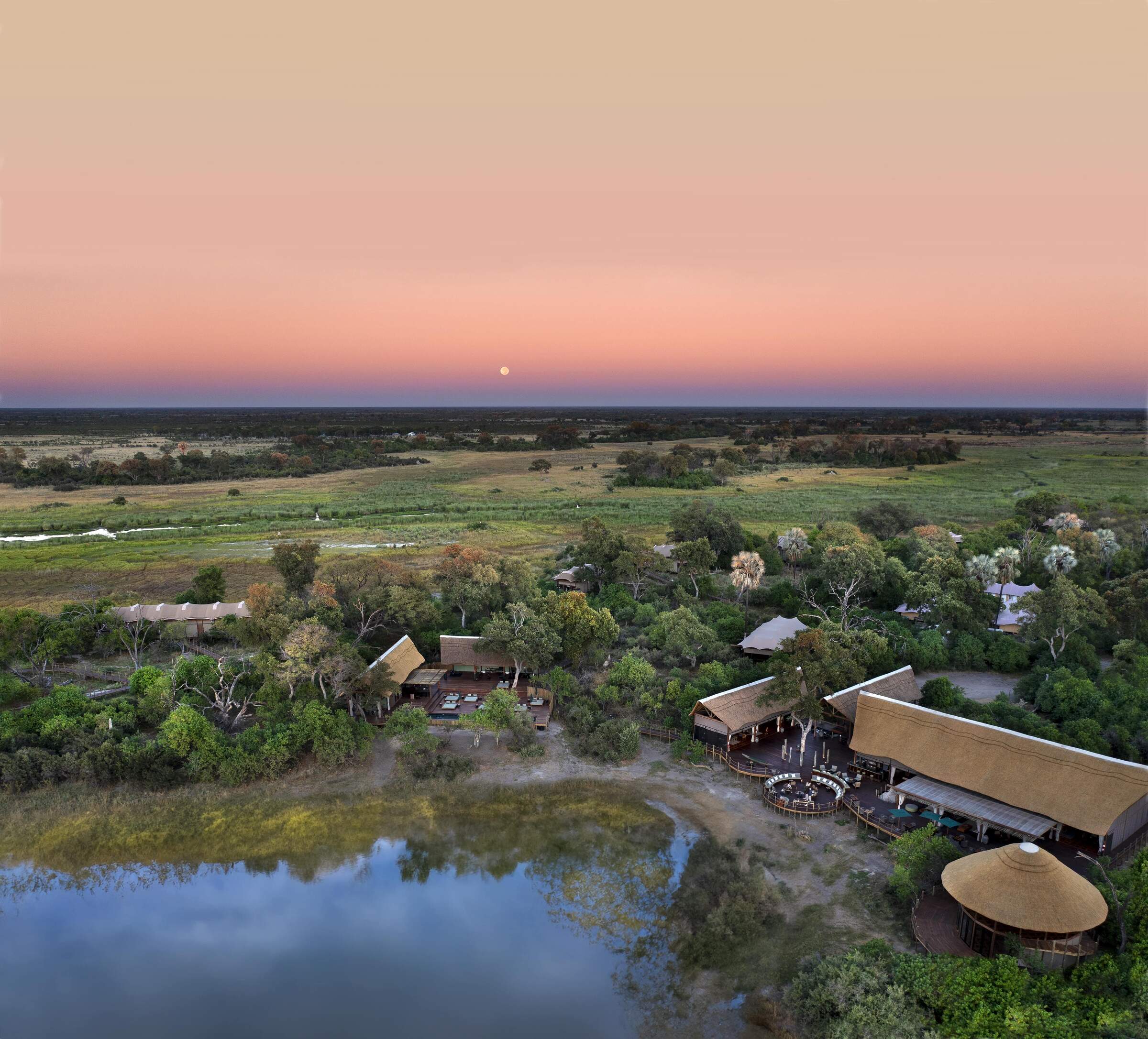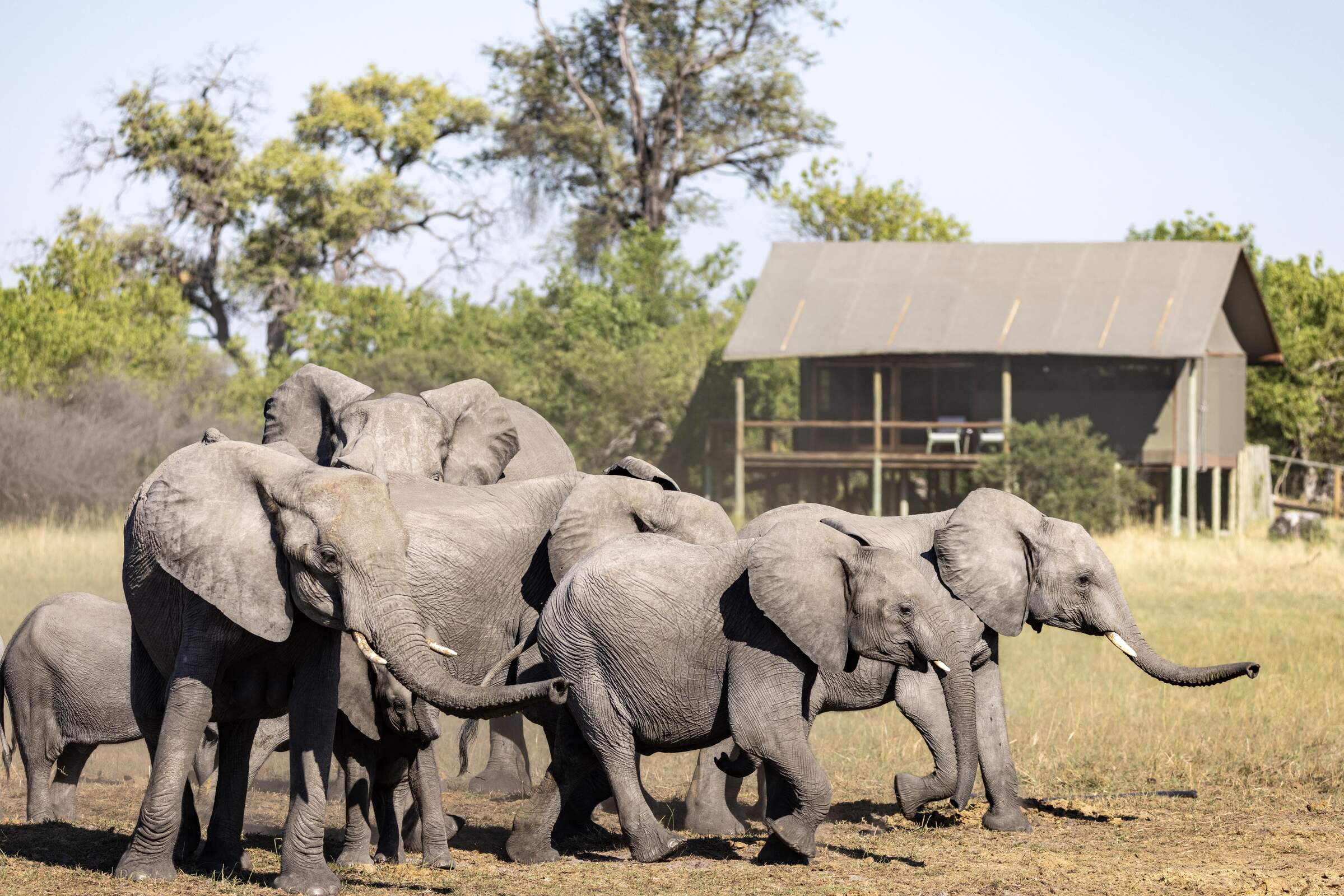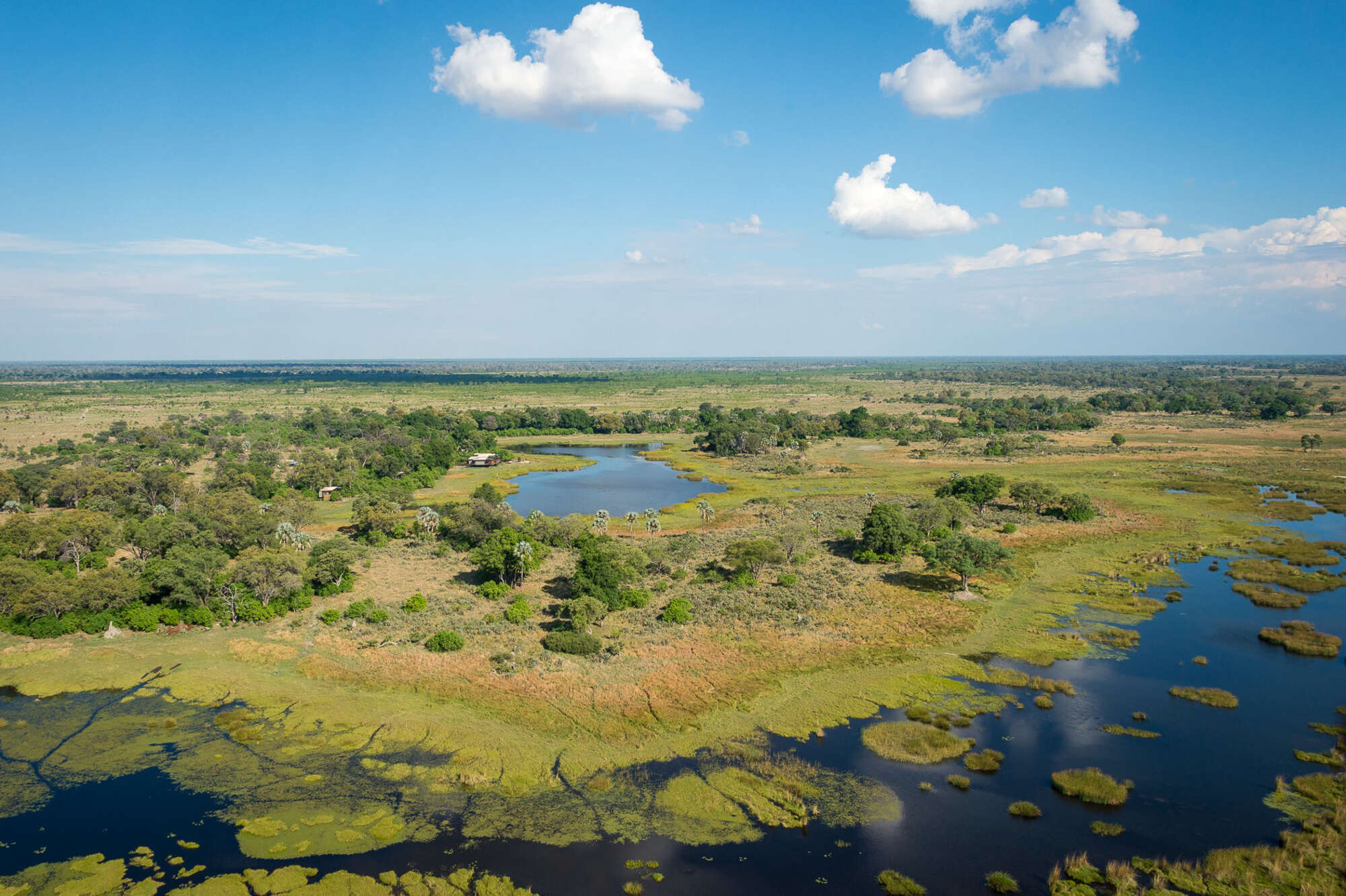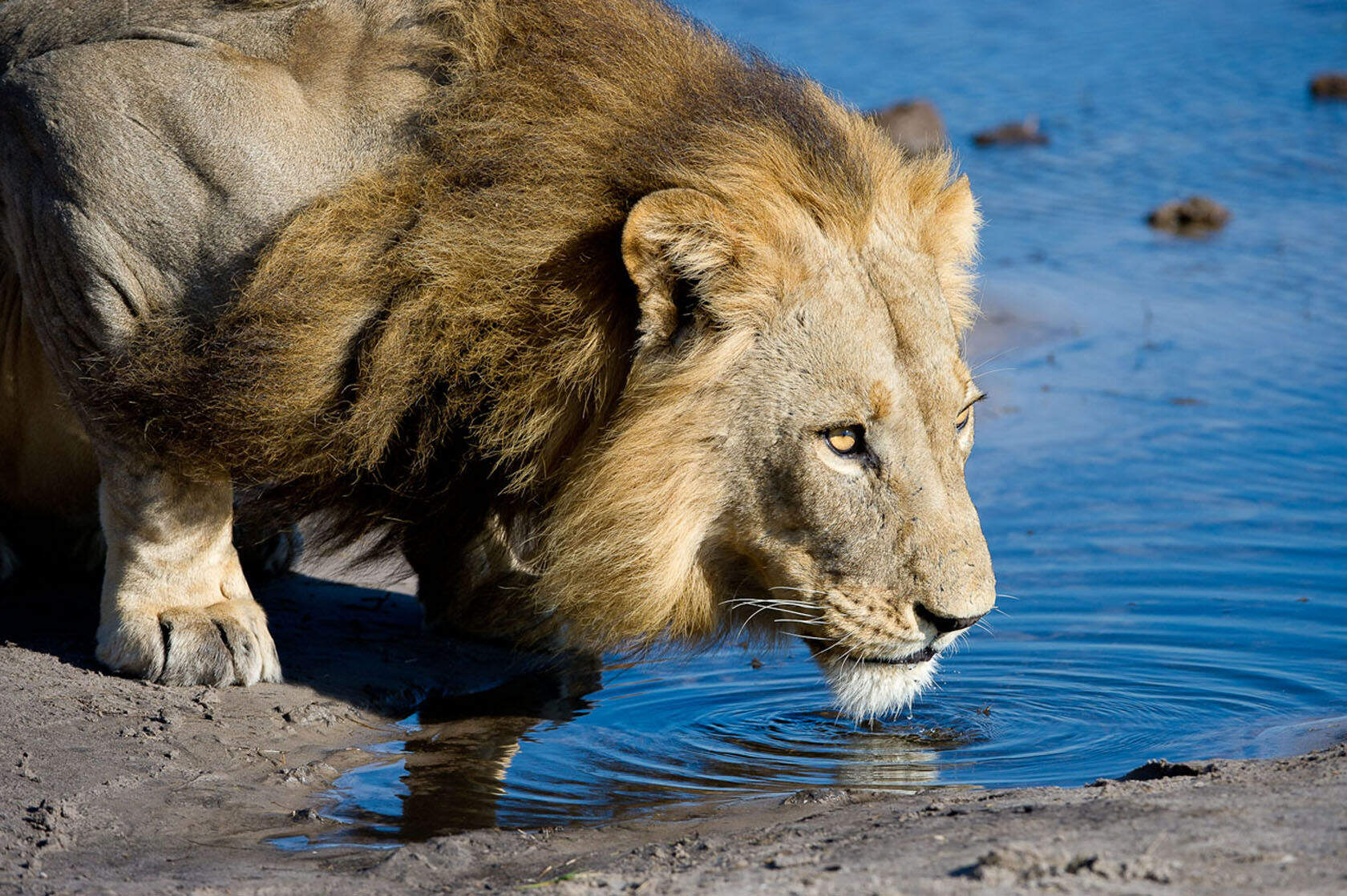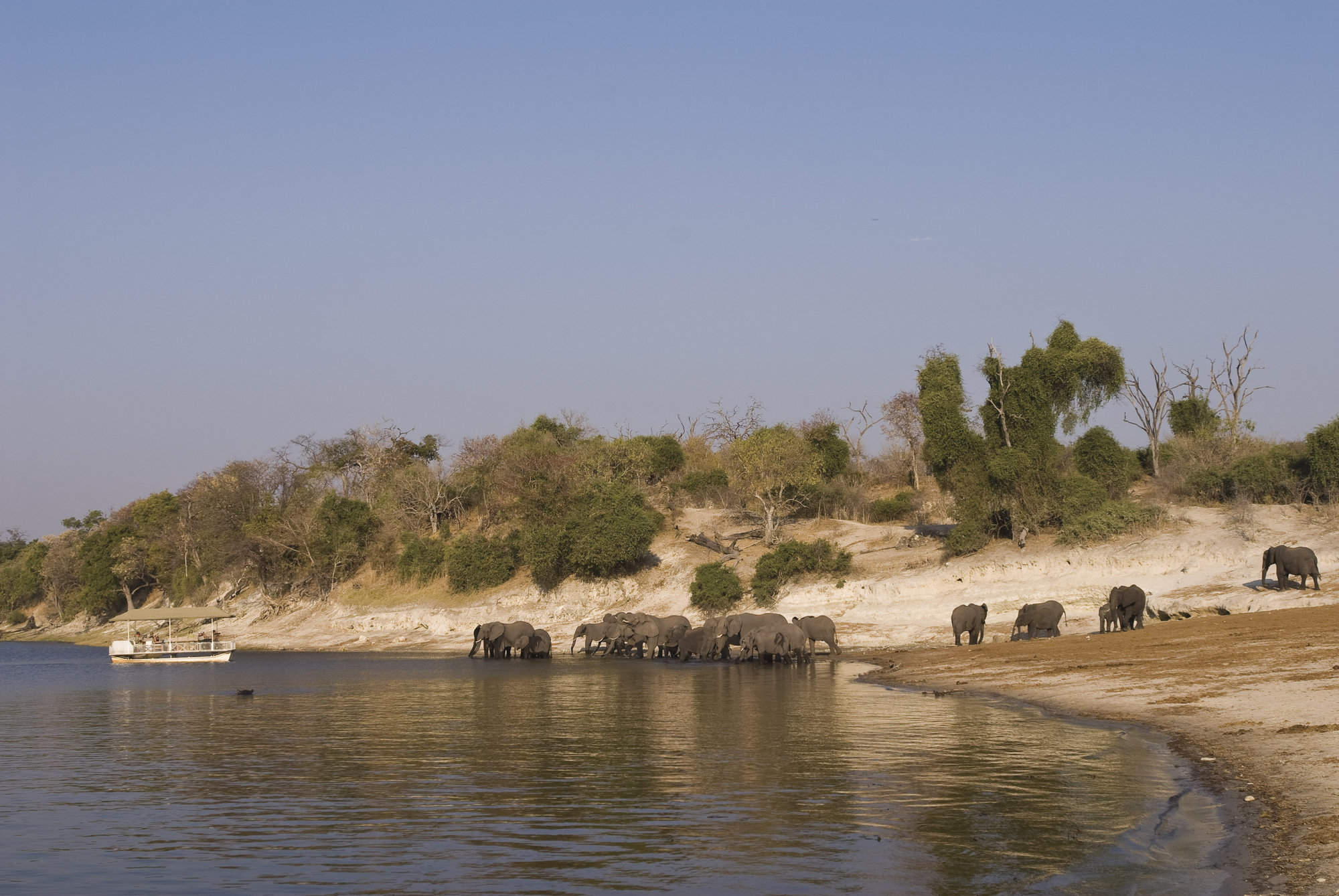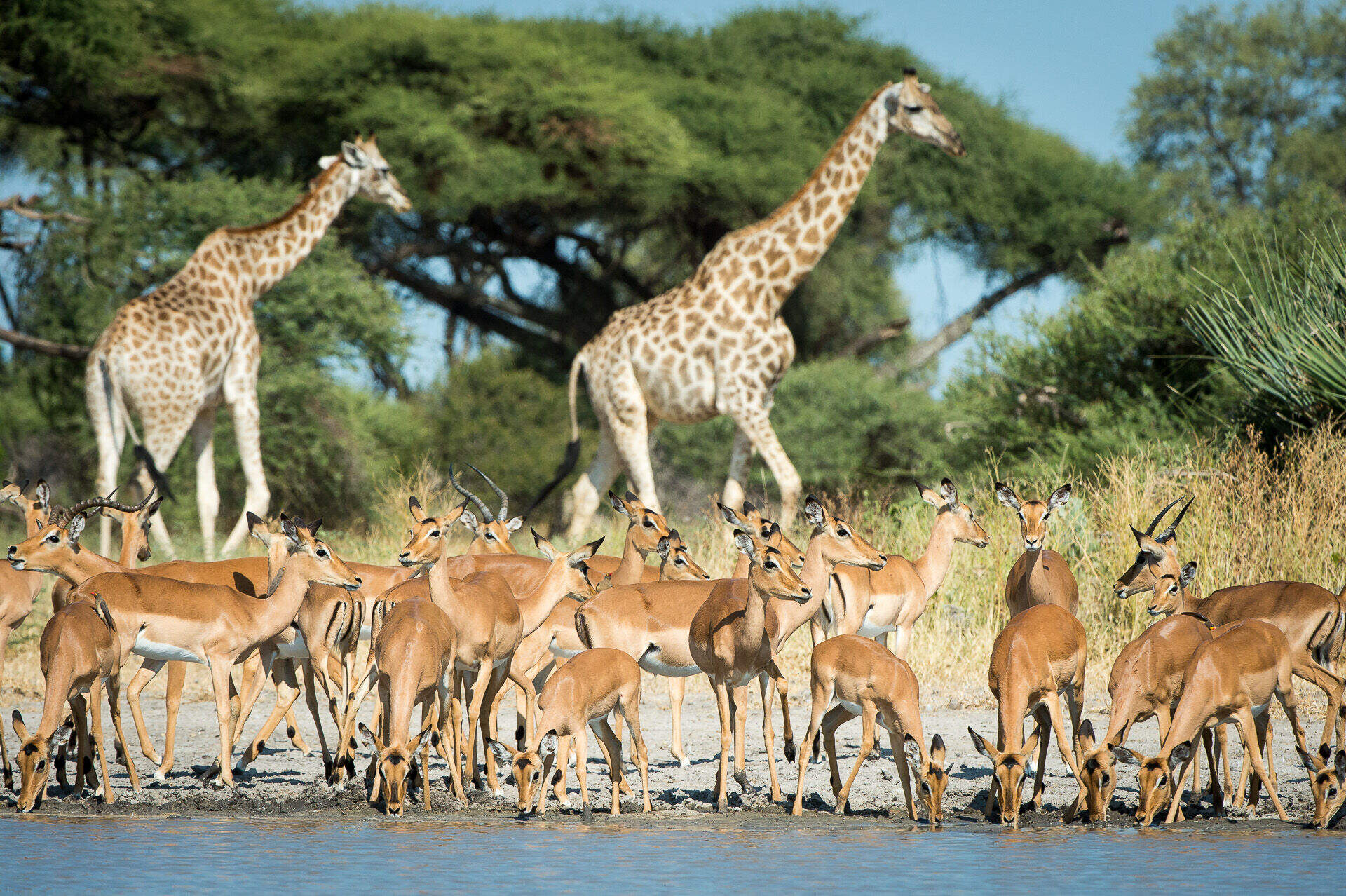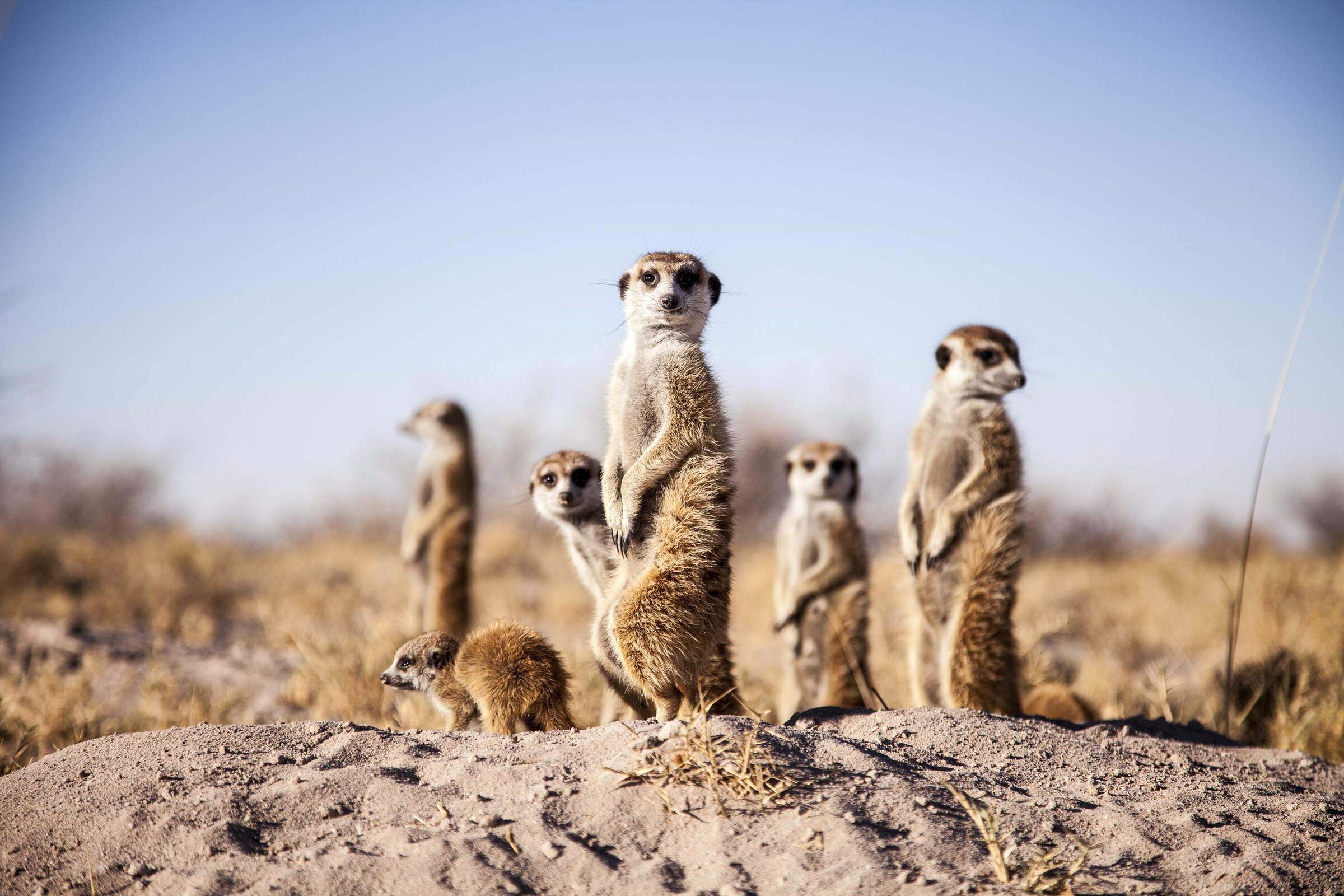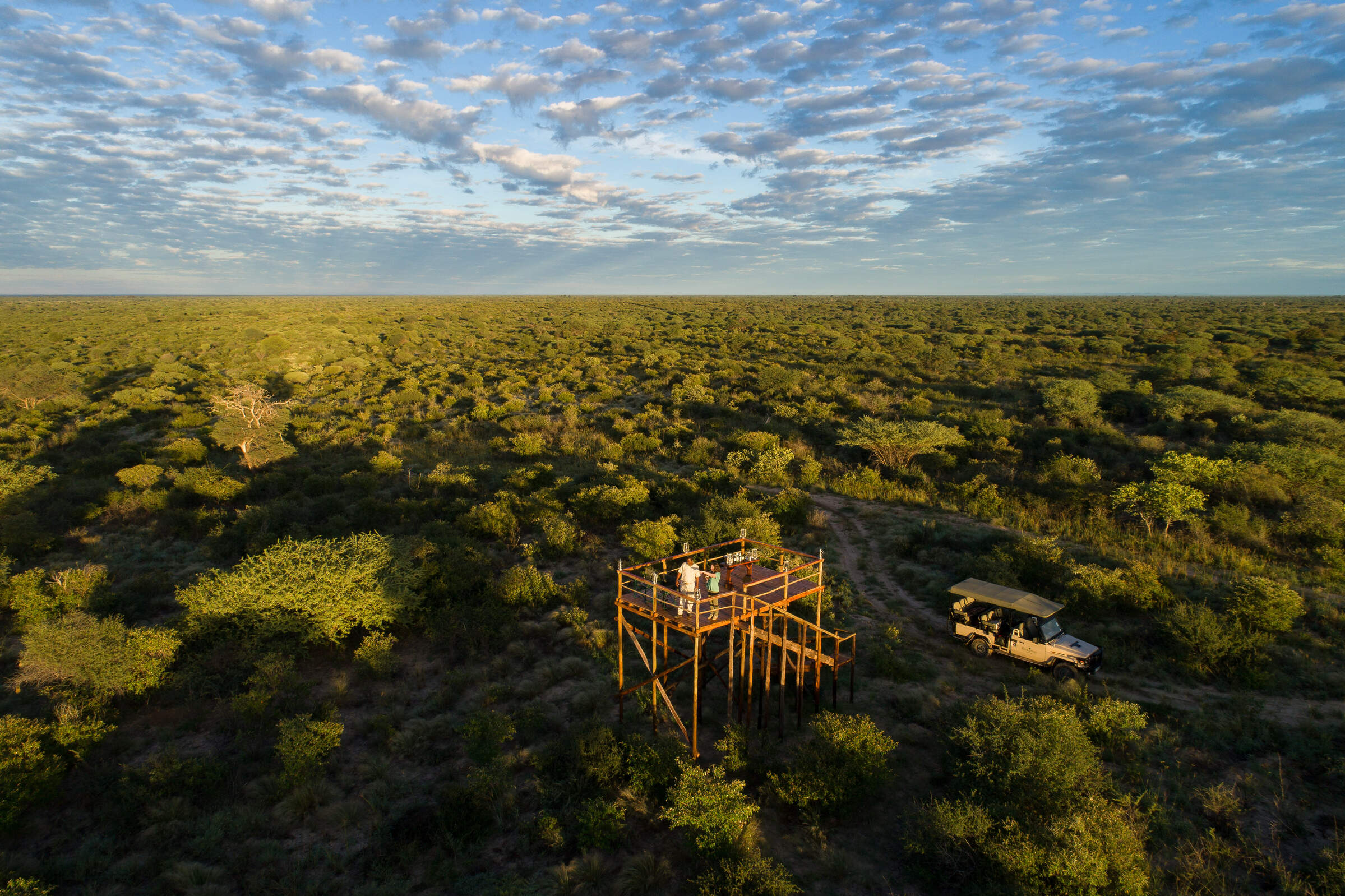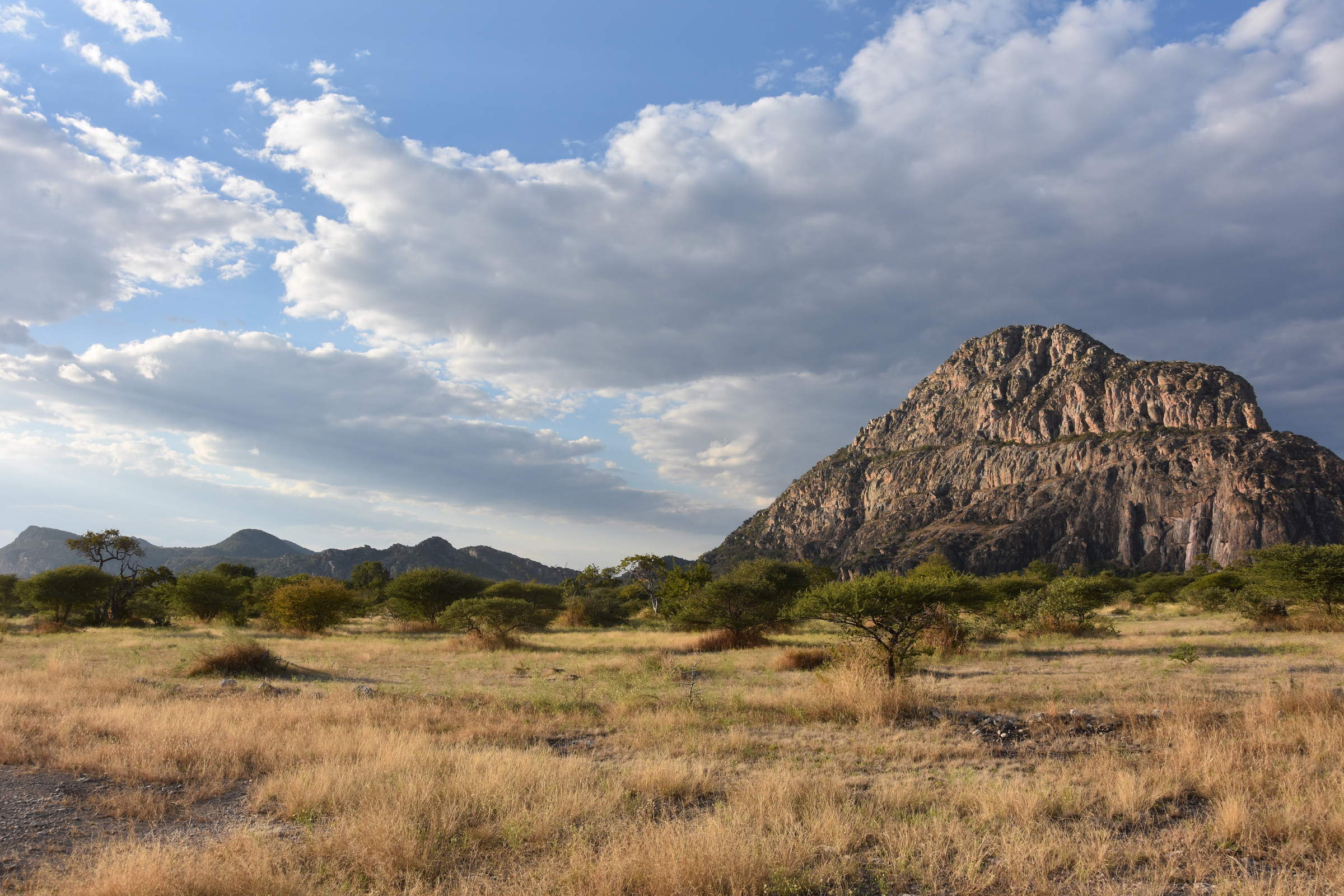Little Tubu: Our full report
Little Tubu is one of the newest camps in the Jao Concession (NG25), recently rebuilt and re opened in June 2024.
Situated on Hunda Island, deep in the heart of a 600km² private wilderness area, it has something of a tree-house feel, and offers iconic Okavango Delta landscape and scenery: wide, open floodplains dotted with small tree islands separated by deeper, permanent channels.Little Tubu is adjacent to its sister camp, Tubu Tree, which we've visited many times over the years. They're separate camps, but joined by a wooden walkway.
In November 2023 Little Tubu closed for a complete rebuild, only reopening in June 2024. The detail in the report below was from our last visit, and will be updated as soon as we can get one of the team out to the 'new' camp.
Shaded by a riverine forest, Little Tubu has a light and breezy feel to it, with plenty of light colours and places to chill out. The main area, including the dining area, is slightly elevated in the lower tree canopy to allow great views across the floodplain. Inside this open-fronted canvas-and-timber structure guests will find a couple of seating areas as well as a small reference library with some board games. A spotting scope can be used to pick out game on the floodplain in front of camp and there's a tea and coffee station, which stays topped up throughout the day.
Communal evening meals are usually enjoyed around the large dining table, although private dining can be arranged for special occasions. Lunch, however, is generally taken on an elevated deck area to the front which, when the water levels are high, sits right on the edge of the floodplain. Further adding to the tree-house feel, the bar area is set into a large waterberry tree. Indeed, the only part of the camp located at ground level is the firepit, which forms a focal point for guests in the early mornings and evenings. Slightly away from the main area, pass through the tree line and guests also have access to a private and secluded swimming pool complete with loungers and sun shades.
Little Tubu accommodates a maximum of just six guests in just three tented chalets although two chalets from the far end of the main Tubu Tree Camp can be used to allow for the flexibility to cater for family groups of more than six, or those travelling with a guide. One of the three tented chalets serves as honeymoon suite with an extra raised viewing deck and sala bed. Each tent has an open feel due to the timber frame and canvas walls with gauze-mesh windows. A king-size bed draped in mosquito netting forms the centrepiece of each room, which also features a couple of comfortable chairs and a writing table with a tea and coffee station and a few reference books. A large wardrobe cabinet at the head of the bed serves the dual purpose of providing storage space and separating the bedroom from the en-suite bathroom. Complete with an indoor and outdoor shower and his and hers washbasins, each bathroom is spacious, with a separate flush toilet for privacy.
A sliding door at the front of each tented chalet opens onto a private deck with comfortable furniture, a perfect spot to watch game moving past camp in the mid-afternoon.
Given the amount of water around Little Tubu (often into the dry season), the emphasis of activities here – much like the other camps in the Jao Concession – is on boating, mokoro and fishing excursions. When water levels are at their highest, mokoro excursions leave from the front of camp, but once the waters recede the mokoro station is moved to a spot just a short drive from camp. That said, Hunda Island is one of the largest in the concession and offers a fair expanse of dry land on which to conduct game drives too, offering immediate access to the best game viewing in the reserve. Most game drives therefore focus on the island, which attracts animals such as giraffe, zebra, kudu and elephant, and the birding is excellent. Although on previous visits Hunda Island has been a reliable place for leopard sightings on our most recent visit in October 2017 it did not seem any better than other areas in the Delta for this typically shy cat. The guides we spoke to thought this might be because of a particularly territorial, but elusive male leopard that had moved into the area and because of the increased population of lions. We did however keep bumping into a pack of five wild dog, including one afternoon following them as they trotted across the grassland in search of prey.
That said, it's important to note that as the Jao Reserve is so wet for much of the year, the game here is often quite spread out, particularly between March and June when the flood waters are at their highest. Thus Little Tubu is best considered as a great place to spend a couple of nights in order to take in the classic Okavango Delta landscape between about March and July: vast floodplains, big skies and small islands formed from ancient ant-hills now vegetated and inhabited mainly by antelope, with a burgeoning leopard population.
Our view
We were very impressed on our first visit to Little Tubu in October 2013, and have been ever since. The camp’s elevated location affords excellent views across the floodplain and the whole camp has an open and breezy feel to it, with a very relaxed ambiance. The game viewing in this area isn’t always as concentrated as in other, drier areas of the Okavango, particularly when it comes to large predators, but there is still plenty going on. The birding is excellent, particularly in the rainy season (November–March), the leopard population is doing well, and the landscape is some of the most picturesque in the Delta.
Geographics
- Location
- Okavango Delta Safari Reserves, Botswana
- Ideal length of stay
- We’d recommend a stay of three nights at Little Tubu towards the end of the dry season (August to October), but just two at other times of the year.
- Directions
- Access to camp is normally via a light-aircraft to Hunda airstrip, from where it’s approximately ten minutes’ drive to camp. Depending on water levels, the camp can sometimes be accessed by boat from Jao, Kwetsani or Jacana camps.
- Accessible by
- Fly-and-Transfer
Food & drink
- Usual board basis
- Full Board & Activities
- Food quality
- We were thoroughly impressed with the food and level of service at Little Tubu the last time we stayed.
Unfortunately we arrived around mid-afternoon so were unable to experience brunch, but we're informed that this is usually a cooked breakfast served with an accompanying quiche or pizza and lots of salad.
Although too late for brunch there was a delicious lunch awaiting our arrival, consisting of bream served with potato wedges and an avocado salad, along with plenty of bread, fruit and cheese.
Afternoon tea is typically something savoury and something sweet, in this instance mini quiches and a chocolate cake. A selection of iced teas and coffees was on offer.
Dinner consisted of a very nice starter of prawns in a sweet chilli sauce on a bed of lettuce. The main course was roast chicken in a bacon sauce accompanied by salad, mixed vegetables and Pilau rice, rounded off with Melba pudding in a cream sauce. - Dining style
- Group Meals
- Dining locations
- Indoor and Outdoor Dining
- Further dining info, including room service
- None
- Drinks included
- Bottled water, soft drinks, local beers and spirits and a limited selection of (usually) South African red and white wines are included. Champagne and imported wines and spirits will cost extra and may need to be requested in advance.
Special interests
- Private villas & houses
- Although not a villa or a house, with just three tents Little Tubu can easily be booked out on an exclusive basis for groups or families wanting a little privacy on their Botswana safari.
- See ideas for Private villas & houses in Botswana
Children
- Attitude towards children
- Children over the age of 12 years are welcome at Little Tubu. The camp may accept children between the ages of six and 12 years old, but private activities must be booked and these will be at an extra cost.
Children younger than six may be accepted by special arrangement, but only if the entire camp is reserved for exclusive use.
Note that minimum age requirements in Botswana mean that children are allowed on boat trips from the age of six years, but on mokoro trips only from the age of 13 years.
Children under 17 years of age must share a room with an adult. - Property’s age restrictions
- Children over the age of 12 are accepted at Little Tubu
- Special activities & services
- There are no special activities or services for children.
- Equipment
- No special equipment is available.
- Generally recommended for children
- Little Tubu is such a small camp that a party of six people, including children, could have exclusive use of it without any extra charges – making it a great choice for one large family or group. Since you would be using the whole camp, you would have ultimate flexibility and private drives at no extra cost. Note however that one adult would have to share with one child as tents do not accommodate two adults and a child.
Generally we think that Little Tubu is suitable for more mature children over the age of 13 years. - Notes
- Little Tubu is unfenced, and dangerous wildlife, including leopard, is known to regularly move through camp. The buildings are all raised up on stilts with only basic railings, which are mostly open except for the handrail. The pool is unfenced. Children must be under the constant supervision of their parents.
Our travellers’ wildlife sightings from Little Tubu
Since mid-2018, many of our travellers who stayed at Little Tubu have kindly recorded their wildlife sightings and shared them with us. The results are below. Click an animal to see more, and here to see more on our methodology.

100% success

100% success

100% success

100% success

100% success

0% success

0% success

0% success

0% success

0% success

0% success

0% success

0% success

0% success

0% success

0% success

0% success
Communications
- Power supply notes
- Generator used for kitchen
- Communications
- There is no cellphone reception, direct phone, fax or email at Little Tubu. Communication is maintained with the head office in Maun via radio.
- TV & radio
- There is no TV or radio.
- Water supply
- Borehole
- Water supply notes
- Solar geysers used to heat water.
Health & safety
- Malarial protection recommended
- Yes
- Medical care
- The nearest doctor is in Maun. All management and guides are first-aid trained and medical evacuation is available in case of emergencies. There is a nurse on call (via radio) 24 hours a day. Please note that it is only possible to fly out of camp during daylight hours as the bush airstrips do not have any lighting at night.
- Dangerous animals
- High Risk
- Security measures
- Guests are escorted to their rooms after dark as dangerous wildlife is known to wander through the camp. A thorough safety briefing is given on arrival. ‘Fog horns’ are provided in the rooms to summon help in case of emergency.
- Fire safety
- There are fire extinguishers throughout camp.
Activities
4WD Safari
Birdwatching
Boat trip
Fishing
Guided walking safari
Helicopter
Mokoro
Night drive
Private activities
Extras
- Disabled access
- Not Possible
- Laundry facilities
- A laundry service is included. Laundry is collected in the morning and usually returned the same day, weather permitting. For cultural reasons and because the clothing is generally handwashed, the staff do not wash underwear. Detergent is provided in each chalet for guests who wish to do a little handwashing.
- Money
- No exchange facilities are offered at Little Tubu. There are small safes in all the rooms, as well as a larger one in the office.
- Accepted payment on location
- MasterCard and Visa credit cards are accepted; Diners and Amex are not. Cash in the form of South African rand, GB sterling, US dollars, euros and Botswana pula is accepted.
Other lodges in Okavango Delta Safari Reserves
Alternative places to stay in this same area.











